THE HARVARD CRIMSON









forced to walk a tightrope around legal traps from anti-affirmative action watchdog groups as the University tries to maintain diversity in admissions.
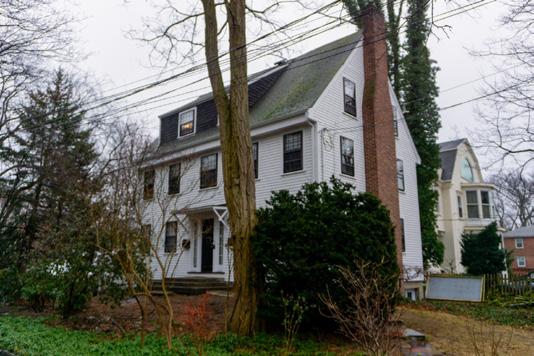
Harvard lost its general counsel when it needed her most. The University’s fleet of more than a dozen in-house lawyers and at least three external law firms have attempted to stabilize Harvard during six months of intense scrutiny and fierce legal battles. But since Diane E. Lopez stepped down as Harvard’s general counsel at the end of February — a decision she announced in November — the hunt for the University’s lawyer-inchief has taken on a new urgency.
In recent months, Harvard was hit by congressional subpoenas, faced several lawsuits stemming from its handling of antisemitism on campus, and has been
Harvard’s lawyers have frequently found themselves in the spotlight over the past six months, most notably following former Harvard President Claudine Gay’s congressional testimony in December.
Gay’s legalistic answers to questions about whether calls for the genocide of Jews violate the University’s code of conduct contributed to her resignation less than a month later.
In filling its top legal post, the University must find a person to turn the tide of Harvard’s current legal predicament in addition to the already tall task of representing the richest university in the world.
In interviews with The Crimson, four experts on higher education law and one
current university general counsel said Harvard’s recent turmoil could shape the search, increasing the importance of government relations and political experience.
The Key Legal Adviser Harvard’s legal arm is a major operation.
The University employs 17 attorneys in addition to administrative staff alongside multiple elite law firms contracted by the University for specific cases. Overseeing the entire operation, Harvard’s general counsel is responsible for crafting the University’s legal strategy, serving as an adviser to the president and the Harvard Corporation — the University’s highest governing body — and deciding when to bring in outside counsel.
Since March 1, the position has been
held on an interim basis by Eileen Finan, a lawyer who began working for Harvard in 1997 after practicing at the law firm Palmer & Dodge.
The University has established a search advisory committee and engaged the search firm Korn Ferry to select a successor to Lopez, according to a job listing on the National Association of College and University Attorneys’ website.
While the March transition was announced in November, it is unclear how close the University is to selecting its next general counsel. They appear to still be considering new candidates, as the NACUA listing remains live.
While the timeline for selecting the next permanent Harvard president is still uncertain, Joyce P. Jacobsen ’82, who
SEE
Harvard Business School professor Francesca Gino — who came under fire for allegations of data manipulation — suggested that Boston University professor and co-author Nina Mažar tampered with her data, according to an internal HBS report.
Mažar, whose name has not been previously reported, was identified in the report as one of two female co-writers with Gino on a prominent 2012 study, following which The Crimson confirmed her identity. The copy of the report was unsealed by a judge on Thursday with redactions of Mažar’s name throughout the document.
“I was stunned to learn of Professor Gino’s false claims about me,” Mažar wrote in a statement Tuesday evening.
“Those claims have no basis in reality,” Mažar added. “I am nevertheless grateful that Harvard undertook the work necessary to spell out all the reasons that her
allegations amount to nothing but an unfortunate attempt to shift the blame and focus from her.”
Last June, three business school professors — the authors of Data Colada, a data investigation blog — publicly accused Gino of data falsification in at least four papers. Following the allegations, the Business School launched an internal investigation — which produced the nearly 1,300-page report released Thursday — and Gino was barred from campus and stripped of her endowed faculty title. The next month, Gino also received notice from Harvard’s Office of the President that her tenure was under review for revocation.
According to the report, Gino provided two initial defenses in response to the investigation: that the data anomalies were due to honest error, and that someone other than her tampered with the data. The 2012 study Gino co-authored with
The John G. Wolbach Library — which carries one of the world’s largest astronomical collections — will shutter its doors on Friday, in a move that was “driven primarily by financial considerations,” according to an email from Harvard Center for Astrophysics Director Lisa J. Kewley. The Wolbach Library houses both the Harvard College Observatory and Smithsonian Astrophysical Observatory collections. The “core operations” of the library will be fully integrated into Harvard Library after its closure.
The decision was made by Kewley and announced in an email to Harvard CfA affiliates on Jan. 23. Kewley wrote that the center was under financial pressure following reductions to the SAO’s budget and a decision to “refocus” HCO funds.
“To minimize the impact on CfA science, technology development, and telescope operations, we need to reduce positions where there can be increased efficiencies or broader institutional support from Harvard or Smithsonian,” Kewley added.
Jesse Han, a Ph.D. student in Harvard’s astronomy department, stated that the CfA’s budget crisis was not communicated to affiliates prior to the sudden decision to shut down the Wolbach Library.
“That was certainly a shock,” Han said.
The closure also meant that five library staff members lost their jobs, according to Kewley’s email.
“We want to express our deep gratitude to the library staff for their exemplary support to the CfA community over the years,” wrote Kewley. “SAO and HCO HR staff are providing support to them during this challenging time.”
Peter K.G. Williams, an innovation
Controversial Lowll Panel Canceled
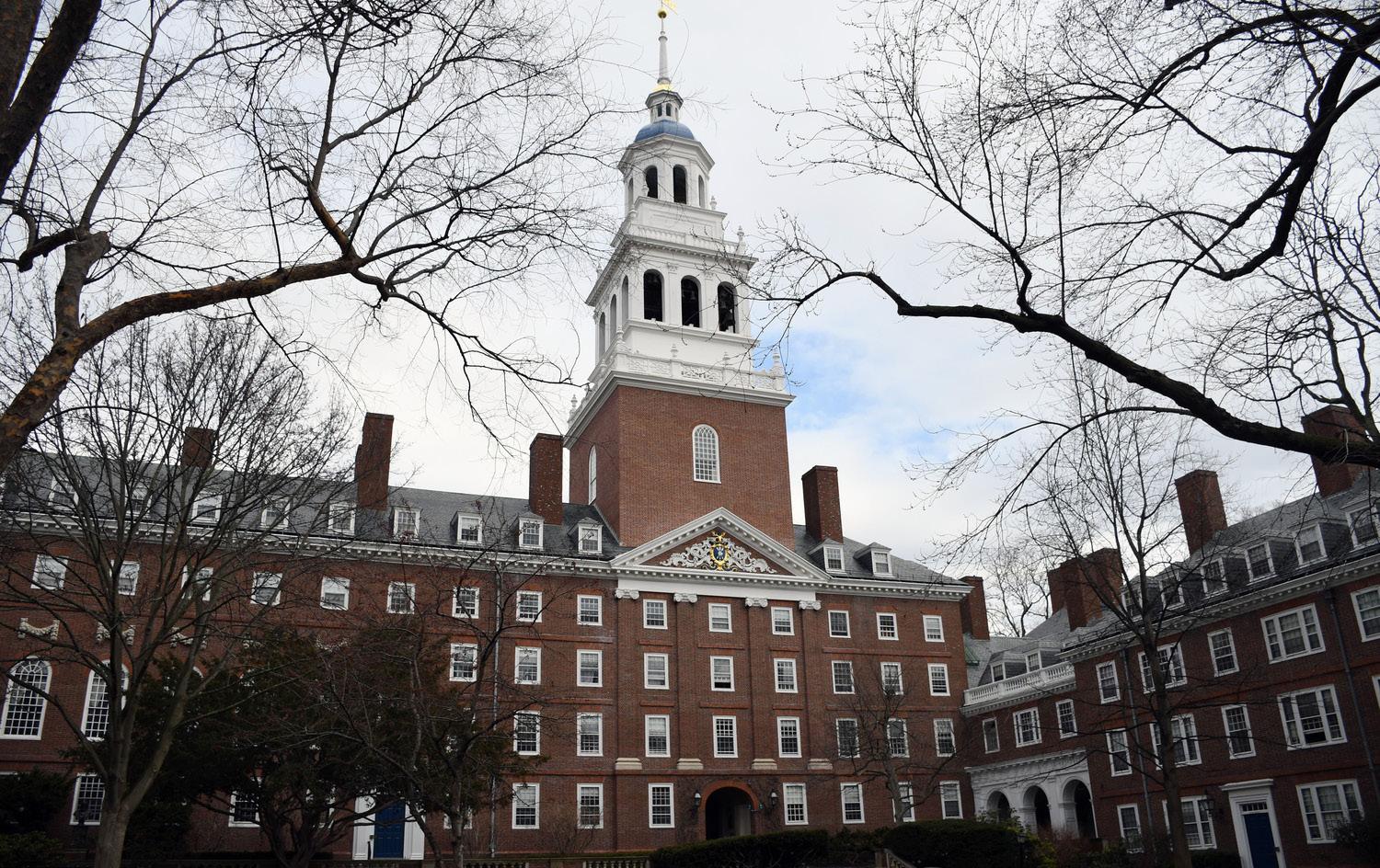
LOWELL. The organizer of a Lowell House panel on Islamophobia and antisemitism canceled the event Wednesday afternoon after two of the panelists withdrew due to backlash and a lack of institutional support for the event. The cancellation comes after the Lowell House Faculty Deans and the Edmond and Lily Safra Center for Ethics removed themselves as co-sponsors of the panel following criticism of the range of political
a
of
IVIES
COLUMBIA
MUSLIM
A
BROWN
DARTMOUTH
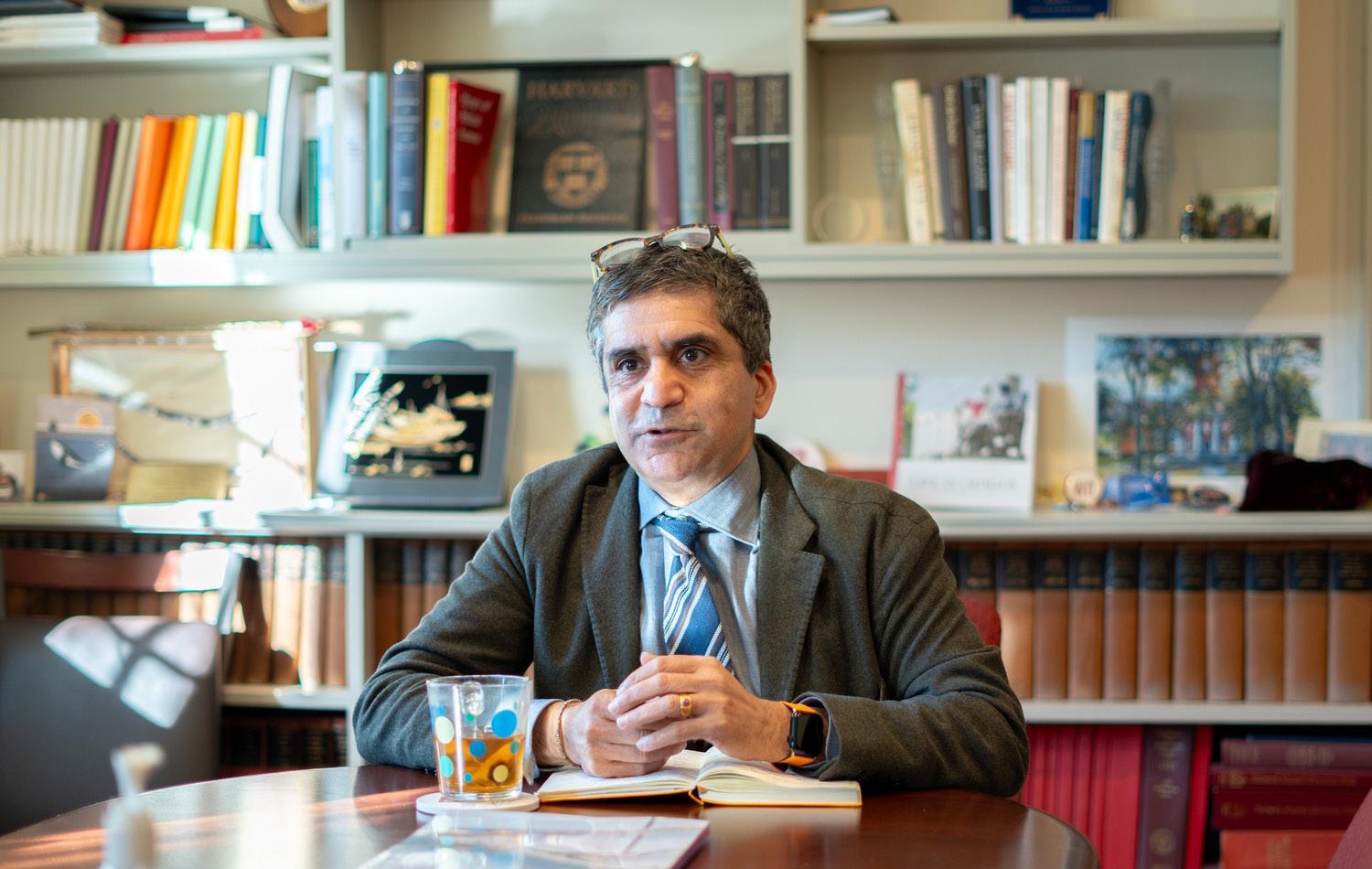
COLLEGE. Dean of the College Rakesh Khurana said he does not expect to be considered for the Harvard presidency. Former President Claudine Gay’s resignation in January triggered the University’s second presidential search in less than three years. While Khurana was not rumored to be a strong candidate to succeed Gay as the University’s 31st president, his comments all but confirm he will not receive an interview with the presidential search committee. BY MICHELLE N. AMPONSAH
AND JOYCE E. KIM — CRIMSON STAFF WRITERS, PHOTO BY
Geoengineering Project Abandoned
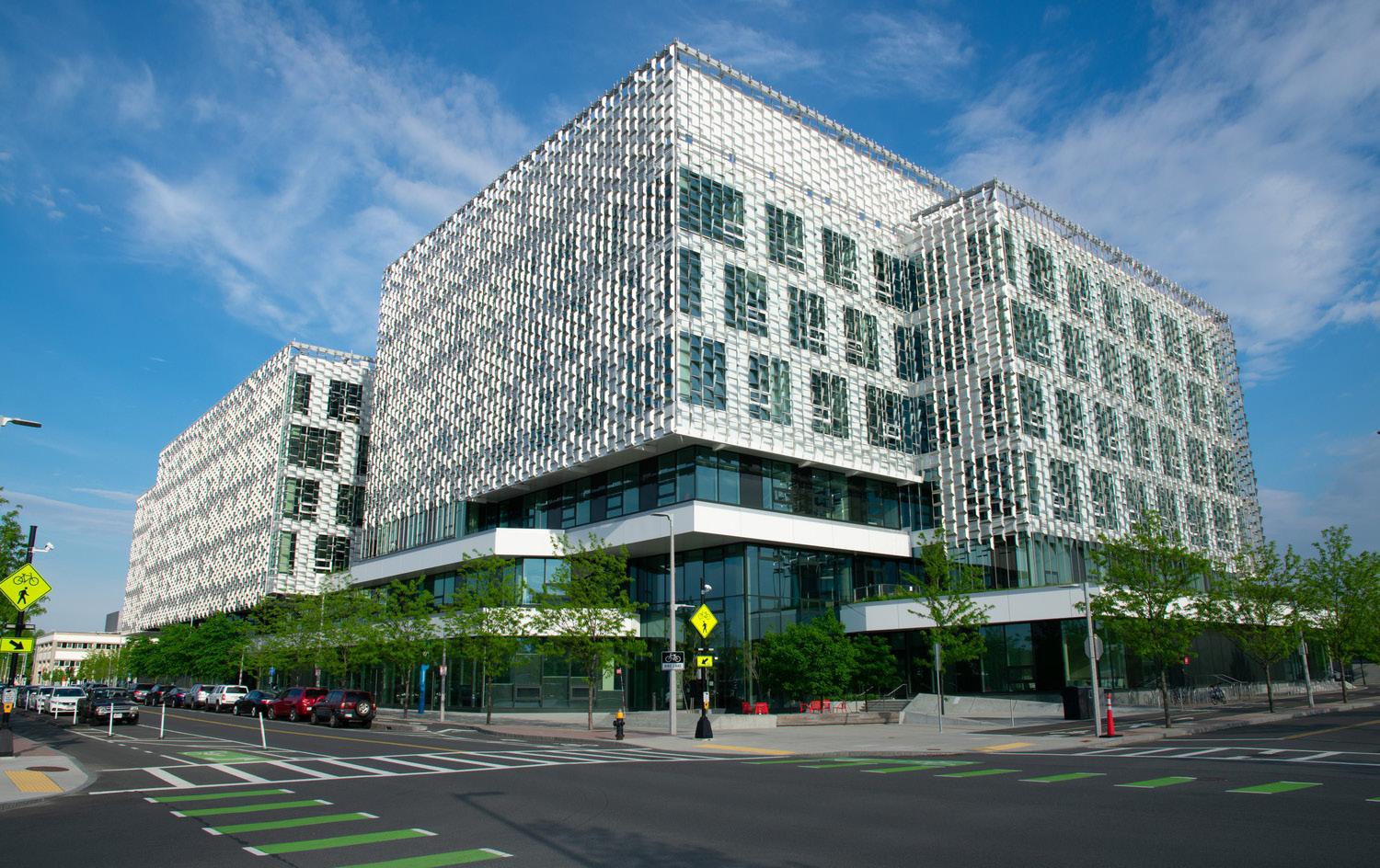
SEAS. A controversial environmental geoengineering experiment led by Harvard Chemistry professor Frank N. Keutsch is officially no longer being pursued, according to a Monday statement. The Stratospheric Controlled Perturbation Experiment had a preliminary goal of gathering data on atmospheric conditions in order to learn more about the impact of aerosols on the stratospheric environment. The decision to abandon the experiment comes 10 years after the idea was initially conceived. BY NICHOLAS J. FRUMKIN AND ELIZABETH PENG — CRIMSON STAFF WRITERS,
PHOTO BY JULIAN J. GIORDANO — CRIMSON PHOTOGRAPHER
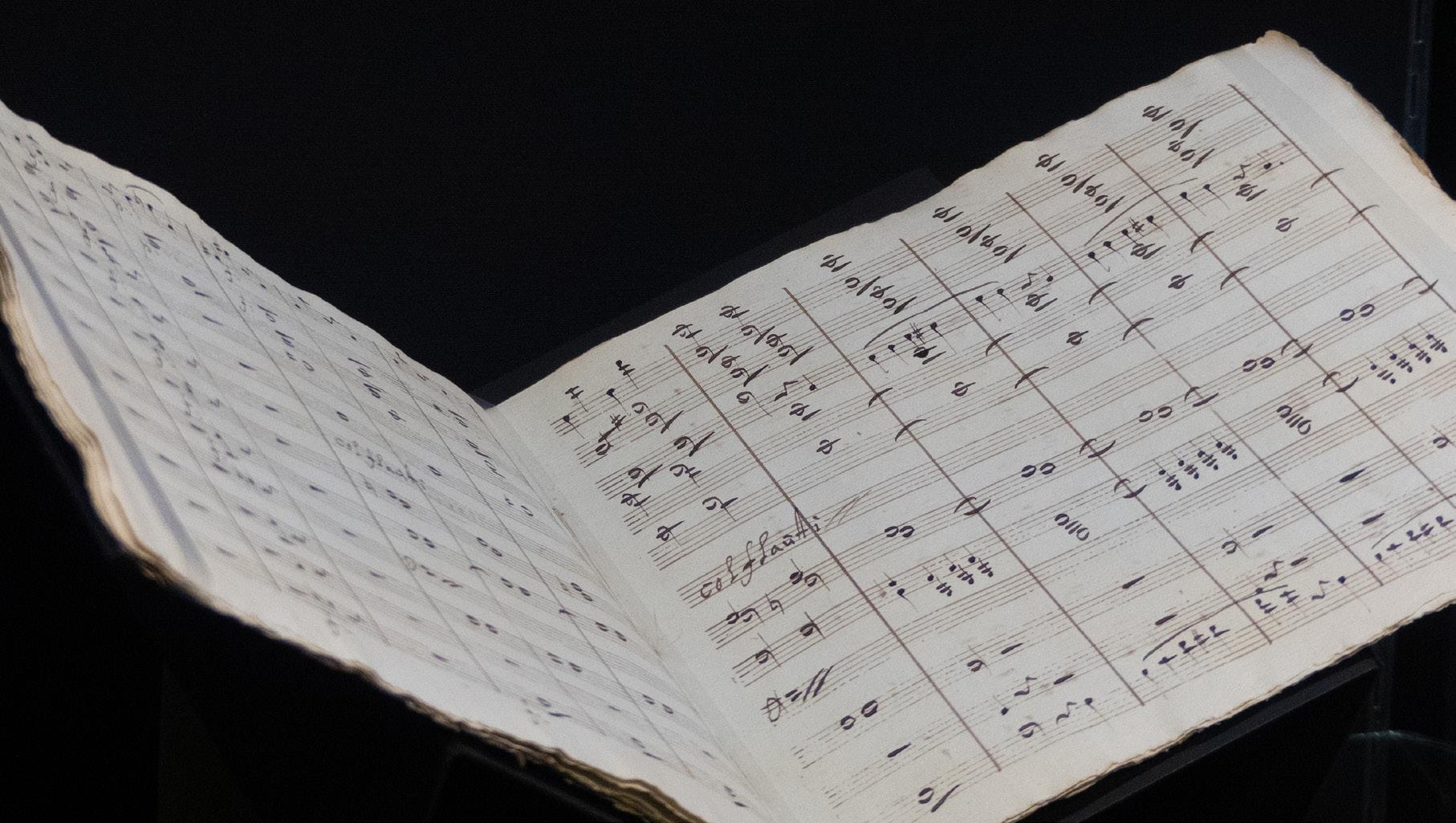

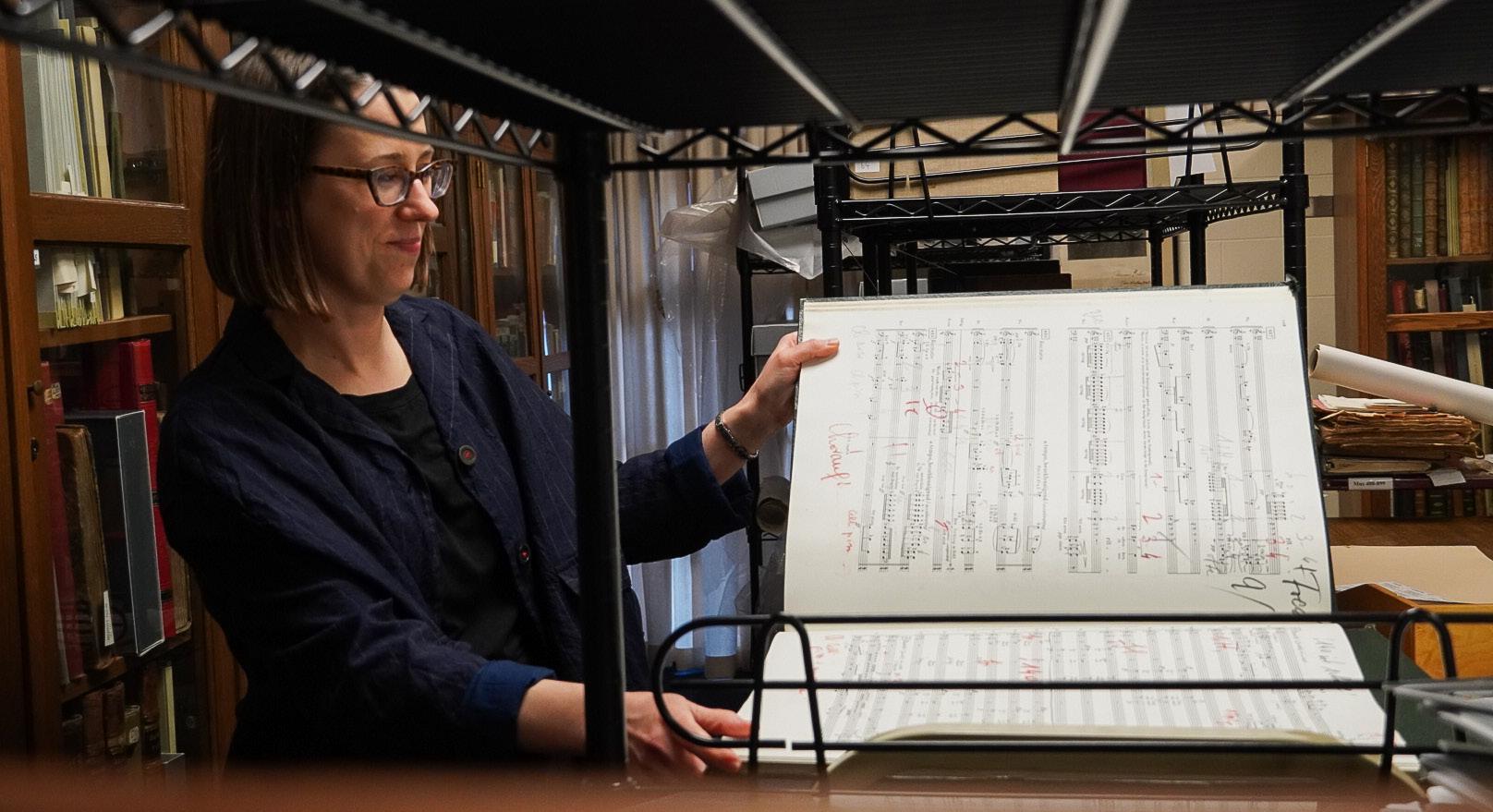
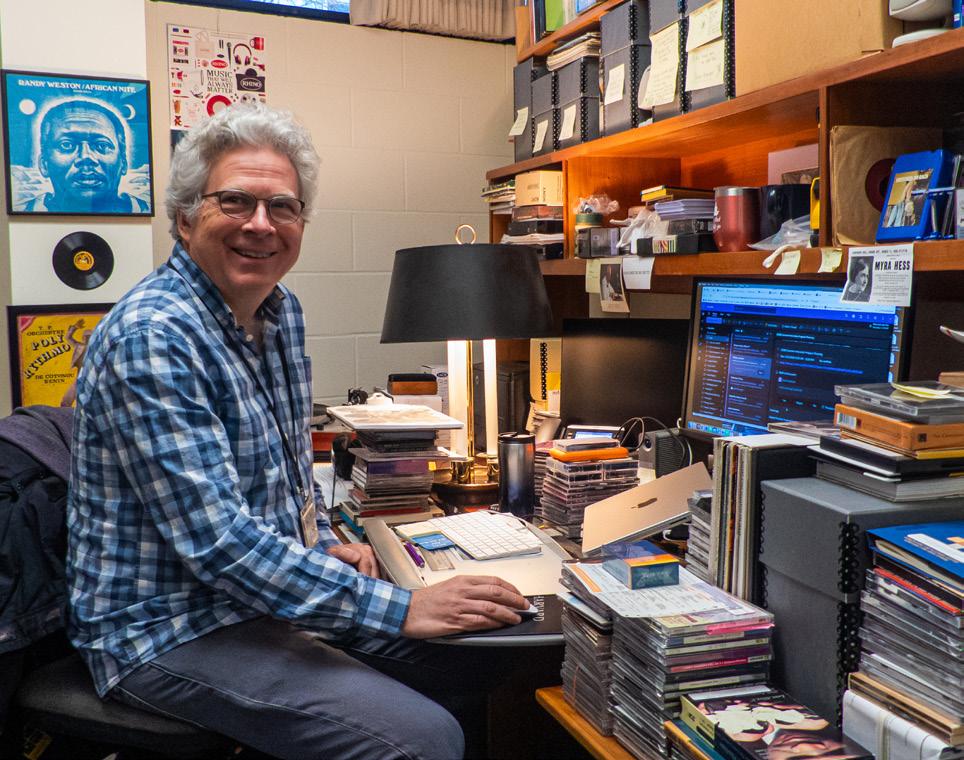



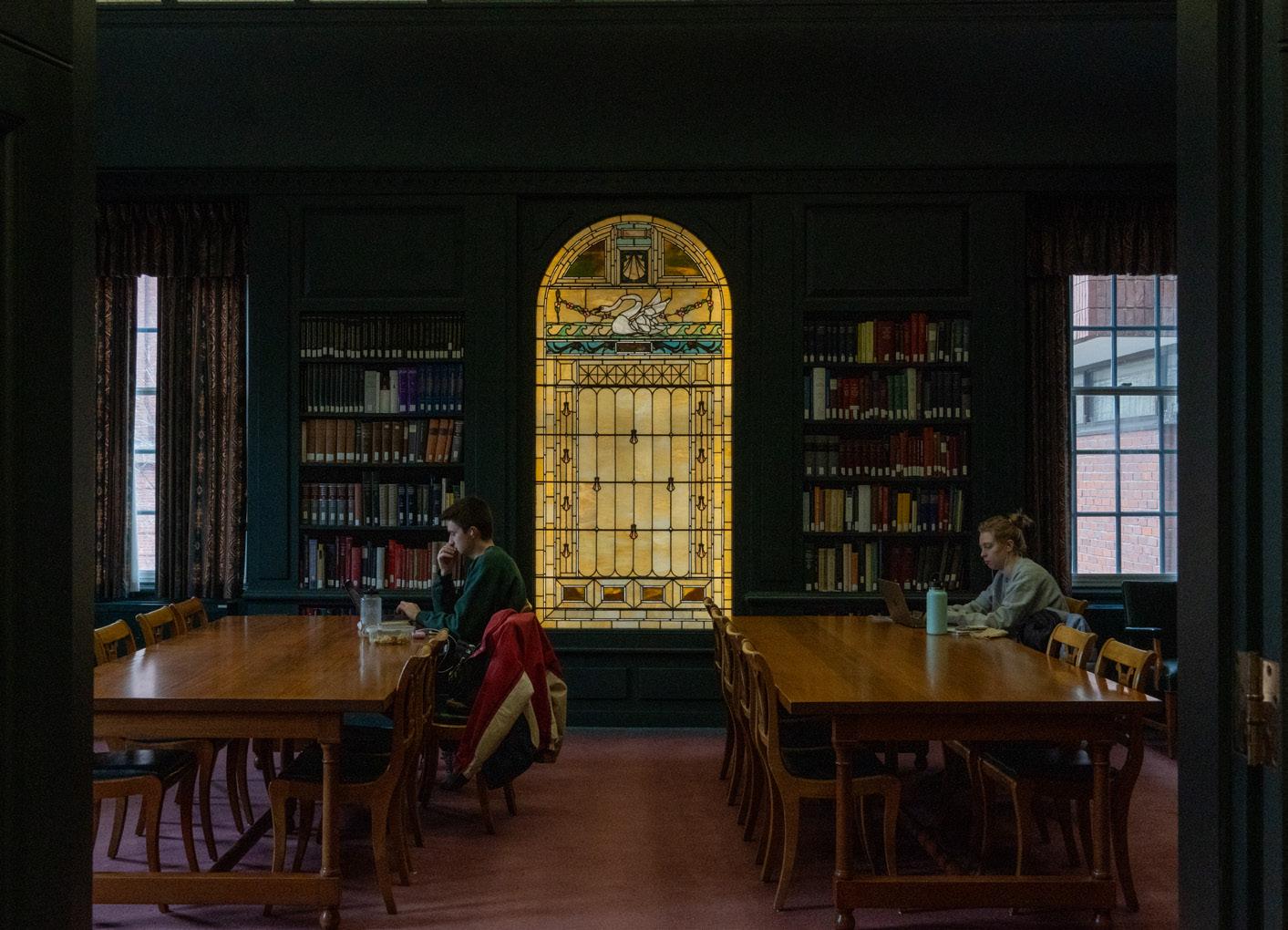
THE
THE HARVARD CRIMSON
MARCH 22, 2024
MISSISSIPPI OFFICERS
SENTENCED FOR BRUTAL ASSAULTS
Christian Dedmon, a former deputy of the Rankin County Sheriff’s Office in Mississippi, was sentenced to 40 years for severe physical and sexual abuses against residents. According to the New York Times, Dedmon was a member of the “Goon Squad” — a self-titled group of deputies who repeatedly detained and tortured county residents in search of evidence for drug arrests. Three other squad members have received lesser sentences, and two more are expected to receive sentences on Thursday.
NETANYAHU SLAMS SCHUMER TO SENATE REPUBLICANS
Israeli Prime Minister Benjamin Netanyahu criticized Senator Chuck Schumer in a meeting with Senate Republicans. Schumer has critiqued Netanyahu’s leadership and called for an Israeli election after the conflict ends. According to the New York Times, Netanyahu cast Schumer as an impediment to peace in the Middle East when speaking with GOP Senators. However, Schumer defended his speech as an expression of support for Israel. The situation reflects a deepening partisan divide over U.S.-Israel relations.
GEORGIA JUDGE PERMITS APPEAL IN TRUMP CASE OVER PROSECUTOR’S ROLE
A Georgia judge allowed defense lawyers in the criminal case against Donald Trump to appeal his decision that allows prosecutor Fani Willis to stay on the case. The appeal will review if Willis should be disqualified due to a conflict of interest. The conflict arose after it was discovered that Willis had a romantic relationship with Nathan J. Wade, the lawyer she hired to run the Trump case. Wade has since resigned. According to the New York Times, the case’s progress hinges on the appeals court’s decision.
UC REGENTS REVIEW SPEECH RESTRICTIONS
The University of California regents are poised to decide on a measure restricting political expressions on departmental websites, a response to intensified pro-Palestinian protests. The proposal would tighten boundaries around university speech. The proposed rules aim to clarify the line between individual and institutional speech, intensifying debates around academic freedom. According to the New York Times, the regents are prepared to vote on the proposal as early as Wednesday.
STRICT TEXAS IMMIGRATION LAW TEMPORARILY BLOCKED
The 5th U.S. Circuit Court of Appeals reinstated a block on a new Texas immigration law, which allows the state to arrest and deport migrants thought to have entered the U.S. illegally. According to the Associated Press, this block comes after the Supreme Court allowed Texas to enforce the law earlier this week.
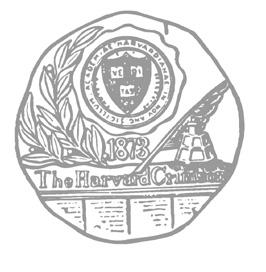
Start every week with a preview of what’s on the agenda around Harvard University
COOKING CLASS: SPICE BLENDING
WITH SMITHA HANEEF
CGIS North Knafel Building, 3:30 p.m.
Join Smitha Haneef, the HUDS Managing Director, for an event on spice blending organized by the Food Literacy Project. Haneef will teach attendees how to make their own garam masala blend and cook sauteed vegetables.
BIKE ALONG THE CHARLES WITH HARVARD ON THE MOVE
BlueBikes Station on Bennett/Eliot St, 10:30 a.m.
Bike around the Charles River with Harvard on the Move. This relaxing 30-minute bike ride will be hosted by a HOTM Blue Bikes Leader. Participants will need to purchase a single BlueBike ride or bring their own bike. Helmets provided.
LE PRÉSIDENT SCREENING
Harvard Film Archive, 7 p.m.
Join the Harvard Film Archive for a screening of JeanPierre Bekolo’s film Le Président. Le Président is a satirical film that analyzes the relationship between the media and political power in Cameroon, a country that has been ruled for four decades by President Paul Biya. Shot in Cameroon, Bekolo’s film explores the meaning of democratic political representation.
Science Center Plaza, 4-5 p.m.
The Women’s Center will unveil a new sculpture in the Science Center Plaza on Monday in honor of Women’s Week. The event, centered around the theme “Rooted,” will explore the experiences of women and gender-expansive people at Harvard.
BOTTICELLI DRAWINGS
Harvard Art Museums, 6-7:30 p.m.
Curator Furio Rinaldi, an expert on Italian Renaissance art, will deliver a lecture on drawings by Botticelli, one of the most famous Renaissance artists. Rinaldi recently organized an exhibition of Botticelli’s Drawings at the Fine Arts Museum of San Francisco which offered a new perspective on the artist .

YOUNG AND RUNNING FOR OFFICE
Institute of Politics at HKS, 6 p.m. Join four young leaders for this conversation on youth in politics. The event will feature former Iowa state representative Joe Mitchell, activist David Hogg ’23, Pennsylvania state representative candidate Anna Thomas, and New Hampshire state representative Valerie McDonnell.
BUILDING AN ELECTRICAL GRID FOR THE FUTURE
Mossavar-Rahmani Center, 12 p.m.
HKS
Hear from Thomas J. Healey, an M-RCBG Senior Fellow, about the future of the U.S. electrical grid. To transition to clean forms of energy, the U.S. must update its electricity transmission systems. Healey will discuss how the U.S. can improve its grid.
MEN AREN’T FUNNY: A WOMEN’S WEEK COMEDY SHOW
Lowell Screening Room, 8-9:30 p.m.
Celebrate women in this women-led comedy show during Women’s Week at this event organized by the Harvard College Women’s Center. Featured guest comedian Amma Marfo will headline the show and will be joined in the line-up by several undergraduate student stand-up comics and improvisers.
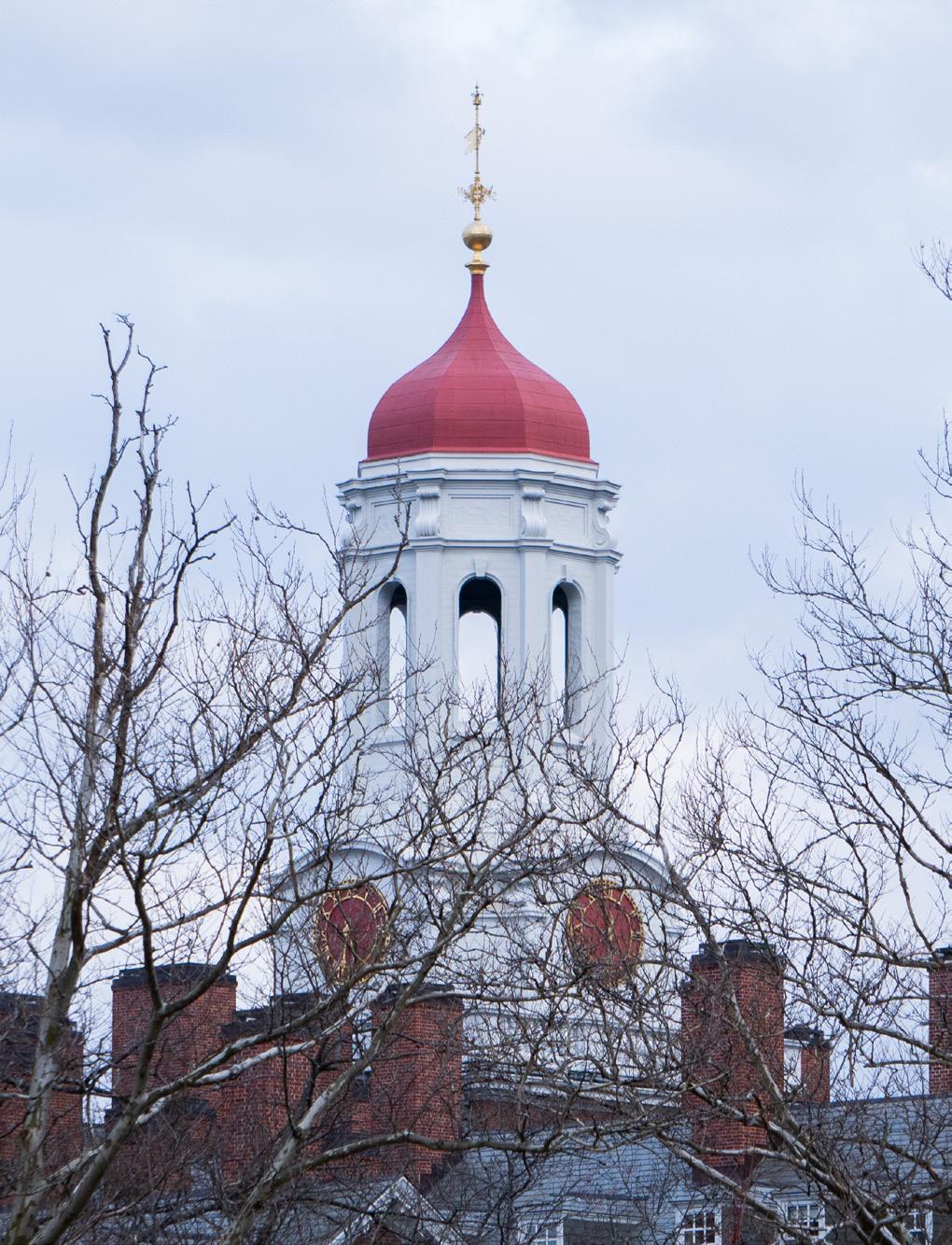
journalist Maria A. Ressa will be Harvard’s 2024 commencement speaker.
BY EMMA H. HAIDAR AND CAM E. KETTLES CRIMSON STAFF WRITERSNobel Prize-winning journalist Maria A. Ressa will serve as the principal speaker at Harvard’s 373rd Commencement ceremony in late May, the University announced Tuesday.
Ressa will address Harvard’s Class of 2024 during the Commencement ceremony’s Morning Exercises in Tercentenary Theater on May 23. She will also receive an honorary degree from the University as part of the ceremony.
Named one of Time Magazine’s most influential women of the century, Ressa is a leading champion of press freedom for her work as an investigative journalist in the Philippines during the tenure of President Rodrigo Duterte.
While serving as a fellow at the Harvard Kennedy School, Ressa won the Nobel Peace Prize in 2021 for her “efforts to safeguard freedom of expression, which is a precondition for democracy and lasting peace,” according to the Nobel Committee.
The first Filipina to be awarded the prize, Ressa shared the award with Russian journalist Dmitry Muratov, the longtime editor-in-chief of Novaya Gazeta.
Ressa co-founded the online news site Rappler in 2012, one of few organizations openly critical of the Duterte regime. She also covered the government’s extrajudicial killings as part of Duterte’s “war on drugs.” Interim Harvard President
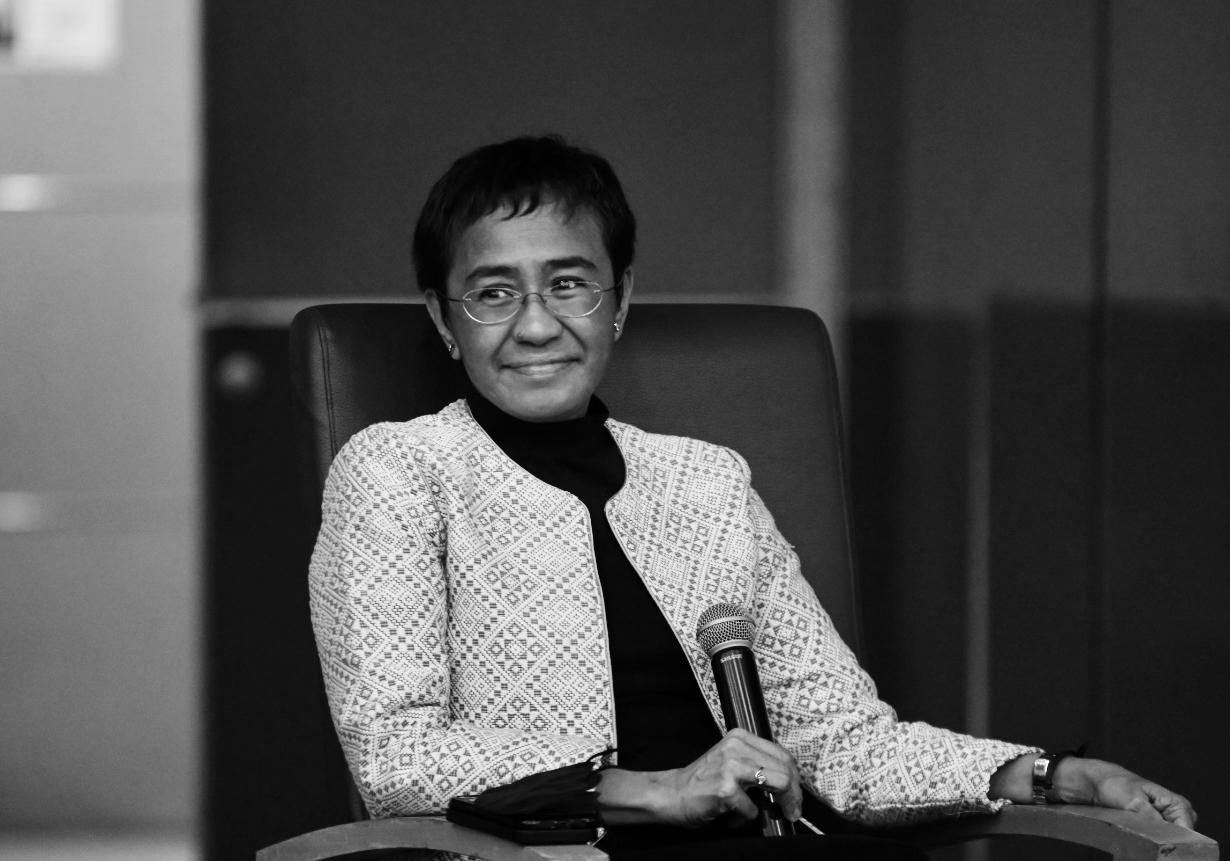
Alan M. Garber ’76 said in a statement to the Harvard Gazette — a University-run publication — that Ressa “embodies Veritas.” “For nearly 40 years, she has dedicated herself to truth — its pursuit, its advocacy, and its defense — no matter the repercussions,” Garber said. Before creating Rappler, Ressa spent nearly two decades as an investigative journalist in Manila and Jakarta at CNN before leading multimedia news operations at ABS-CBN, the largest news organization in the Philippines. Ressa grew up in New Jersey after her family immigrated to the U.S. from the Philippines when she was 10 years old. She attended Princeton University, graduating cum laude in 1986 before moving
back to the Philippines on a Fulbright fellowship to pursue journalism.
Ressa has also faced several legal battles — including a libel conviction and charges of tax fraud — that she has called further blows to press freedom in the Philippines.
Along with the Nobel Peace Prize, Ressa has won numerous awards for her work, including the 2020 Journalist of the Year award, the 2020 John Aubuchon Press Freedom Award, and the 2018 Knight International Journalism Award. Journalists are frequent speakers at Harvard’s end-of-year events.
The X account belonging to the Harvard Islamic Studies Program was suspended on Feb. 22 for “violating rules against platform manipulation and spam,” according to Harry Bastermajian, the program’s executive director.
Bastermajian, who discovered the account’s suspension on March 8, questioned whether it was motivated by Islamophobia or racism. He said his team did not receive any prior warning about the suspension.“Islamic and Middle Eastern Studies feels under attack right now,” Bastermajian said. “So that’s why red flags started popping up when I saw this suspension.”
A media representative for X did not respond to requests for comment regarding the suspension of the Harvard Islamic Studies Program’s account. Bastermajian said his team appealed the account suspension to X on March 8 and they received an email confirming the appeal had been received on the same day, but no further responses have come from X since.
sons cited in the email from X, they checked to see if the account had been hacked or compromised, but did not find any suspicious activity.
“When I was going through our DMs, trying to see if there’s anything there, I didn’t see anything there,” Bastermajian said. “And so the spam part didn’t make any sense to me.”
Bastermajian also said he was confused about the allegation of a “platform manipulation” violation.
“I don’t really know what that is, to be honest with you,” he added.
Before the suspension took place, the Harvard Islamic Studies Program’s X account had been active since 2010 and had around 7,000 followers, according to Bastermajian.
“Twitter was one of the ways you get people to listen, and Islamic Studies and Middle Eastern Studies is very active on Twitter,” Bastermajian said. “It was a good space for us.” Bastermajian said he informed several people about the account’s suspension, including an employee in the Office of General Counsel and peers from sister programs at Georgetown, Cambridge, and the University of Edinburgh.
In 2023, NPR journalist Mary Louise Kelly ’93 gave the keynote speech at Harvard Alumni Day and CNN chief medical correspondent Sanjay Gupta spoke at Harvard Medical School and School of Dental Medicine’s joint class day ceremony. Other recent Commencement speakers include actor Tom Hanks, former New Zealand Prime Minister Jacinda Ardern, and U.S. Attorney General Merrick B. Garland ’74.
emma.haidar@thecrimson.com cam.kettles@thecrimson.com
In 2020, Harvard selected then-Washington Post Executive Editor Martin Baron as its Commencement speaker. Baron delivered his address virtually after the Covid-19 pandemic forced the University to postpone its in-person graduation ceremonies.
Harvard spokesperson Jason A. Newton declined to comment for this article.
In total, the Russian government has blocked more than 2,000 U.S. citizens from entering its borders — a list that includes elected officials, intelligence officers, think tank leaders, and academics.
Summers, who served as U.S. Secretary of the Treasury under Bill Clinton, said in an interview with The Crimson that he was “honored to be counted as an adversary of President Putin.”
“I have been a strong advocate for the seizure of Russia’s currently frozen economic assets for the benefit of reconstruction of Ukraine,” Summers said, adding that he hoped it would happen “rapidly” and be “painful” for the Russian government.
The newest sanctions largely target academics who have been publicly critical of the Russian government or supportive of Ukraine’s war effort — though the list also includes government officials, two FBI special agents, and defense industry leaders.
firmation of the work I am doing at the Belfer Center,” Donfried wrote.
Both Walton and Donfried said they thought it was unlikely that the sanctions would affect their academic work. Neither planned to travel to Russia.
Walton said it was the second time Russia has sanctioned him. As a dual American and British citizen, he was previously blocked from entering Russia on his U.K. passport on Feb. 12.
Like Donfried, Walton described the sanctions as a “badge of honor.”
The names, Walton noted, appear to have been selected haphazardly — constituting what he called “a very bizarre list.”
The new sanctions, he said, seem imbalanced, focusing on names from the “soft arena of academia” while omitting public figures, including HKS faculty, “whose job was unambiguously on the part of the U.S. government to damage Russian national security.”
WOLBACH FROM PAGE 1
“We were really surprised,” Bastermajian said. “We don’t use Twitter all that often. We’re just posting for events, talks, we retweet things from other centers of Harvard and programs at other universities.”
When Bastermajian and his team first learned that the account had been suspended for the rea-
Bastermajian said he felt “supported” by his colleagues and emphasized that the Harvard Islamic Studies program is “not political.”
“It feels personal,” Bastermajian said. “I know I shouldn’t really take it that way, but it kind of does.”
lizzy.huang@thecrimson.com
and said the sanctions came in response to “ever-expanding” sanctions by the U.S. against Russia.
The addition of new names to the list of American citizens banned from entering the country came one day before the start of Russia’s heavily orchestrated 2024 presidential election.
Vladimir Putin claimed he won a fifth term as president on Sunday, with the country’s Central Election Commission reporting that he received 87 percent of the vote.
Russia has sanctioned Harvard affiliates in the past. Harvard Corporation Senior Fellow Penny S. Pritzker ’81, Corporation Fellow Mariano-Florentino “Tino” Cuellar ’93, and six other Harvard affiliates were blacklisted from entering Russia in May 2023.
On Feb. 25, 2022, the day after Russia launched its full-scale invasion of Ukraine, Vacroux and Abdelal co-signed a statement on the Davis Center website that condemned the invasion and declared that the Center “stands with the people of Ukraine.” Abdelal declined to comment, and Vacroux did not respond to multiple requests for comment on Sunday.
Like Summers, Donfried and Walton said they were more flattered than shocked by the sanctions.
Donfried wrote in an email that she was “not surprised” to find her name on the list. Per the statement, she was sanctioned in connection with her former role as U.S. Assistant Secretary of State for European and Eurasian Affairs, from which she stepped down in March 2023.
“Like many, I view inclusion on the Russian MFA’s sanctions list as a badge of honor and an af-
At least one person on the list, Hoover Institution senior fellow John B. Dunlop, is dead, Walton pointed out.
“It seems to me to be mostly about theatrics,” Walton said. “Western governments have, of course, expelled sanctioned Russian officials, so Russia will, of course, feel duty-bound to do the same.”
tilly.robinson@thecrimson.com neil.shah@thecrimson.com
scientist at the CfA, said that the loss of the librarians at the Wolbach and the expertise they provided is “the worst part.”
“They’re good colleagues to work with,” he said.
Williams added that the library’s legacy as a world-renowned astronomy library will live on, but noted that “a lot of the reason for that is the people that are there, and we will be losing them.”
Jasmine Gill, a Ph.D. student in Harvard’s astronomy department, said they are “really going to miss our librarians.”
“Our librarians really brought the community together, and they hosted a lot of community events as well,” Gill added. “So that was kind of really a hard xkind of thing to accept.”
Kewley stated in her email that the decision was made “after consultation at the executive levels at SAO and HCO.” Faculty members and professors from the CfA were not involved in the decision-making process of the library’s closure.
Harvard spokesperson Alixandra Nozillo wrote in an email to The Crimson that “work is being done now with Harvard Library for full integration.”
Some professors said that resources from the library were often found in online libraries, through Harvard’s astrophysics data system or NASA’s SciX, or would be easy to access through the interlibrary loan service.
Astronomy professor Charlie Conroy wrote in an emailed statement that “all of the resources that astronomers use in their day-to-day work are available online.”
However, the physical closure of the Wolbach has left CfA students, staff, and faculty members with a feeling of emotional loss.
Astronomy professor Abraham “Avi” Loeb wrote in a statement that viewed the library’s closure to be “a sad moment.”

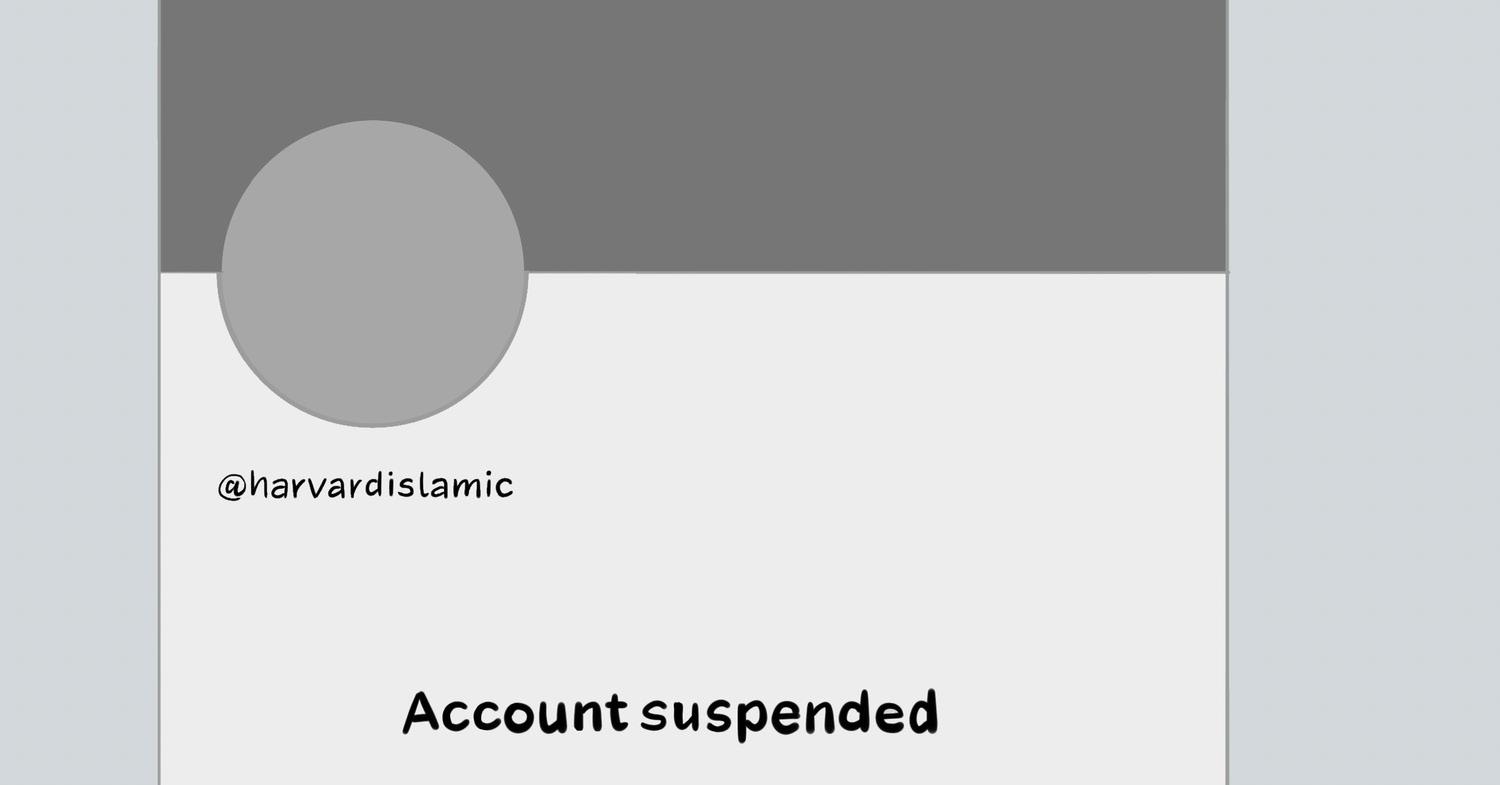
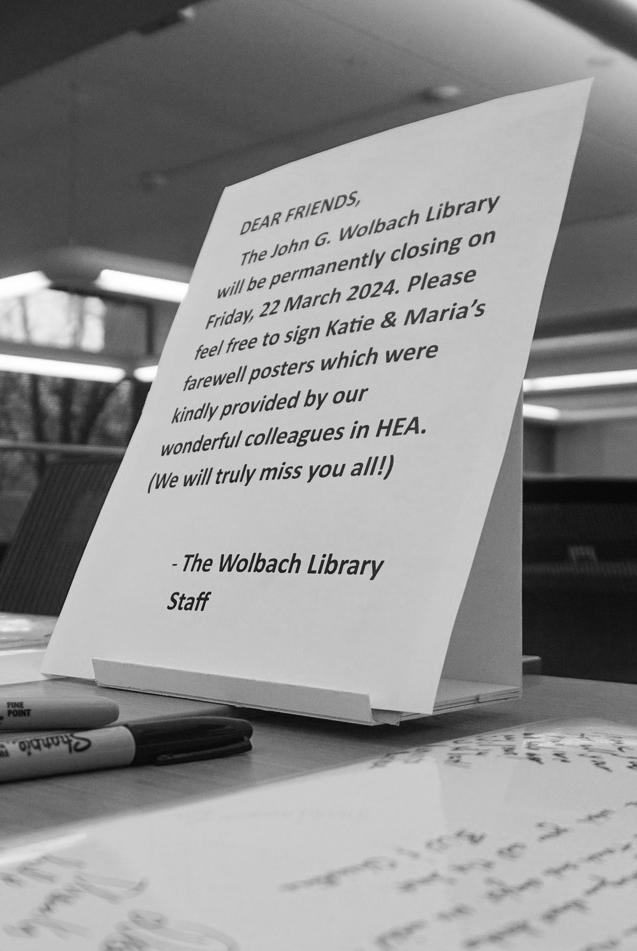
“Over the years, I developed an emotional connection to physical books,” Loeb wrote.
In addition to providing books for classes and research purposes, Han said that the library was “an integral part of the day to day life” for students, from hosting socials and providing a place to study, to displaying the history of female astronomers.
“On all aspects that you can think of, I think it’s a terrible loss,” Han said. The CfA declined to comment on criticisms of its deci -
sion to close the library. In Kewley’s email, she described that the integration of the Wolbach into the Harvard library would begin in January “with full integration, reallocation and redesign of space expected to take up to a year.” Gill, the Ph.D. student, said that it is “really hard to say goodbye to certain traditions.” “One just hopes that some part of that tradition is still kept alive,” Gill added.
neeraja.kumar@thecrimson.com annabel.yu@thecrimson.com
HARVARD YARD. A contracted worker was banned after being filmed tearing down posters of Israeli hostages.
BY MICHELLE N. AMPONSAH AND JOYCE E. KIM CRIMSON STAFF WRITERSAman who was contracted by Harvard to do groundskeeping work was ordered to leave campus and was banned from returning to work for the University after he was videotaped tearing down posters of Israeli hostages from a posting area in Harvard Yard.
The video, posted to X by Jewish student organization Harvard Chabad Wednesday morning, revealed a confrontation
between a man who was wearing a crimson “Harvard Campus Services” sweater and an unknown individual who filmed the encounter. The person filming the video repeatedly asks the worker why he is removing the posters of Israeli hostages from a bulletin board outside of Thayer Hall. The video of the encounter, which lasted less than five minutes, showed the worker getting increasingly upset by the repeated questions about why he was tearing down the posters.
“It is my fucking job,” the worker told the person filming the encounter.
As the exchange grew more heated, one of the worker’s colleagues stepped between the worker seen tearing down the posters and the person filming
the video.
By the end of the video, after repeated back-and-forths, the worker —who his colleague referred to as “Jackson” in the video — began yelling in the face of the person filming the video, telling him to “get the fuck out of here” and that “nobody wants to talk with you.”
Harvard spokesperson Jason A. Newton wrote in a statement Wednesday afternoon that the University “strongly condemns” the worker’s actions. “The contract worker was directed to leave campus, and his employer has been notified that the individual may not be assigned to return to campus to perform work in the future,” Newton added. The worker in the video could not be immediately reached for
comment.
In a caption to the X post with the video, Harvard Chabad condemned the tearing down of the posters. Per a long-standing University protocol, all posters are removed from posting areas in Harvard Yard every Monday and Thursday. The removal of the posters on a Wednesday morning appeared to be inconsistent with the University’s own policies.
“On the request of our Israeli students to raise awareness of the suffering of their loved ones being held hostage in Gaza, Harvard Chabad has been sponsoring posters of their loved ones,” Harvard Chabad wrote on X. “Against university policy and MA law, our posters have been torn down almost daily.”
“Last night, a student
camped out to see who was do -
ing this,” the post added. “This is what he encountered.”
Rabbi Hirschy Zarchi, the Harvard Chabad president and a Jewish Chaplain at the University, decried the incident in a Wednesday afternoon email.
“It was a stunning example of how even after so many months of antisemitism shamefully exposed on the Harvard campus, how little has changed,” Zarchi wrote. “The continued hateful tearing and defacing of the posters and the faces of Jewish hostages on the Harvard campus and across America is a stain on the soul of our university and the country.” The Harvard Jewish Alumni Alliance also weighed in on the video in a Wednesday post on X.
“With the tension on cam -
pus, the lawsuits, the congressional investigation – how easy would it have been for Harvard to give a quick policy refresh to its employees?” the group wrote, referring to the House Committee on Education and the Workforce’s investigation into antisemitism at Harvard. “Just apply your own rules equally.”
Anonymous posters and a string of poster vandalisms have deepened divisions among the Harvard student body. In January, posters of Israeli hostages were defaced with antisemitic messages, though it is unclear whether the people who vandalized the posters were Harvard affiliates.
michelle.amponsah@thecrimson.com joyce.kim@thecrimson.com
Harvard College Dean Rakesh Khurana said he does not expect to be considered for the post of University president in an interview with The Crimson on Tuesday. “I love my current job,” Khurana said. “I don’t expect to be considered.”
Former President Claudine
Gay’s abrupt resignation in January triggered the University’s
worst leadership crisis in decades. Alan M. Garber ’76, longtime University provost, assumed the role of interim president immediately after Gay stepped down.
Gay’s resignation also forced Harvard Corporation Senior Fellow Penny S. Pritzker ’81 to launch the University’s second presidential search in less than three years, as she attempts to find a steady hand to helm the University and guide it out of the current turmoil.
More than two months into Garber’s tenure as interim presi-
dent, Pritzker has not announced a presidential search committee. The delay stands in stark contrast to Harvard’s two most recent presidential searches, in which search committees were formed on a faster timeline.
While Khurana, a former faculty dean of Cabot House, was not rumored to be a strong candidate to succeed Gay as the University’s 31st president, his comments all but confirm he will not receive an interview with the presidential search committee.
Since stepping into the role of interim president, Garber has tak-
en steps to amend Harvard’s deeply-divided campus and win back donor support for the University.
Last fall, the College was marked by protests following the Israel-Hamas war and Khurana’s role as dean came under heightened scrutiny. In particular, Gay faced questions during her December congressional testimony about antisemitism on campus and Khurana’s handling of a Nov. 17 occupation of University Hall by nine pro-Palestine student organizers. At the start of the spring se -
mester, Garber sent a University-wide email to remind affiliates about Harvard’s policies on protest and dissent on campus and announced the formation of twin task forces to combat antisemitism and Islamophobia.
Garber also recently traveled to London and Miami to speak with donors and alumni about the current state of the University.
But during the interview, Khurana declined to directly state whether he would support Garber remaining in his role as president beyond an interim capacity.
“I enjoy working with inter-
im President Garber and will always support whoever the leadership is of the institution I work for,” Khurana said. “I’m grateful that interim President Garber has stepped into the role,” he said. “I’ve worked with interim President Garber for many years and have only the utmost respect for his judgment, integrity, and commitment to Harvard University’s research and teaching mission,” he added.
michelle.amponsah@thecrimson.com joyce.kim@thecrimson.com
co-wrote a book about university general counsels, said she does not expect Harvard to wait for a new president before installing a permanent general counsel.
“I don’t think they can actually put off that long,” Jacobsen said.
Harvard spokesperson Jason A. Newton wrote in a statement that “the General Counsel search is ongoing, and information on an appointment will be shared once the search is complete.”
Finding the University’s legal team lead will be no easy task.
Edward Rock, a law professor at New York University, said the University’s schools, endowment, and relationship with the government all require different specialized legal advice — making the general counsel role complex.
“In an enterprise the size of Harvard, the chief legal officer is going to have this really complicated, really varied set of responsibilities that ultimately are necessary to advise the president and ultimately to advise the Corporation as well on Harvard’s legal exposure,” Rock said.
The job posting requires at least
15 years of experience, including “within higher education or in an industry of similar complexity.”
Jacobsen said the institution’s pick will likely be an internal candidate, a general counsel at a peer institution, or someone with experience in higher education representation at a major law firm like Sullivan & Cromwell, Ropes & Grey, or WilmerHale. Louis H. Guard, general counsel for Hobart and William Smith Colleges, said the challenge is finding someone with “a deep, substantive knowledge of a really broad array of legal issues.”
Guard, who co-wrote the general counsels book, said when considering a university’s response to broader issues facing higher education, general counsels must ask themselves, “Is this a hill that my client is willing to die on for the greater good of all?”
Harvard’s legal team has been at the root of the biggest criticisms levied against the University over the past six months.
The University relied on WilmerHale lawyers and former Corporation Senior Fellow William F. Lee ’72 to prepare Gay for her congressional testimony.
A second blow came weeks later, when the New York Post revealed that Clare Locke, an external law firm engaged by the University, threatened legal action against the Post if it published allegations of plagiarism against Gay.
The exchange prompted an internal investigation that later concluded that her work did contain “duplicative language.”
The threat increased existing scrutiny on the Corporation and how it handled the allegations.
Clare Lock partner Thomas A. Clare wrote in a statement at the time that their letter “responded only to specific passages identified by the Post on October 24.”
More recently, Harvard engaged King & Spalding to advise the University’s ongoing response to the House Committee on Education and the Workforce investigation into Harvard.
While the use of outside firms has primarily been credited and
blamed for Harvard’s legal strategy, the general counsel oversees their hiring and management.
To the extent that external firms were at fault for bad publicity, the general counsel was at least partially to blame.
David B. Walek, a genetics company general counsel, said Harvard should consider someone who could “bring some fresh light to the place.”
“If I were involved in the search, I would certainly be looking for somebody from outside of Harvard,” said Walek, a former Ropes & Grey partner who did legal work for Harvard.
The University’s job posting for the vacant position also stated that in critical moments, the general counsel “takes on a higher level of participation” in top decisions.
“The General Counsel will be relied upon to provide wise strategic counsel on issues of the highest risk in the legal and political arenas as well as in the court of public opinion,” the posting stated.
Peter F. Lake ’81, an expert in higher education law, said the evolution of a general counsel role
from being dedicated to technical legal advice to navigating the court of public opinion has been on display at Harvard. “I would imagine there is a lot of soul-searching going on,” Lake said.
‘A Tenuous Place’
Among the most pressing issues for Harvard’s legal team are subpoenas stemming from the congressional investigation.
After weeks of back-and-forth between the University and the House committee over requests for internal documents, meeting minutes, and sensitive disciplinary records, the committee issued subpoenas to three of Harvard’s top leaders and gave them a two-week deadline to comply.
While the committee is currently weighing further action beyond the subpoenas, Harvard’s legal team must make its own calculus — while waiting for a general counsel to be named.
“With the election coming up, there may be a very different constitution of that committee going forward,” Jacobsen said. “So you
could imagine the strategy might actually be to do some stalling.”
Facing scrutiny from political forces, the University may favor someone with government legal experience in the search process for the next general counsel.
“I think the focus over the last couple of months will probably on a relative basis advantage a candidate with some experience in the political sphere,” Rock said. Harvard’s ongoing legal battles with the Department of Education and congressional committees are unlikely to end before a new general counsel is appointed, and whoever succeeds Lopez should be prepared to enter the political arena.
“The line between legal and political around all the issues that Harvard’s dealing with right now related to this is razor thin,” Guard said. “That is a tenuous place for any legal advisor or college administrator to be operating in,” he added.
emma.haidar@thecrimson.com cam.kettles@thecrimson.com

liver the
ed. Osman said that medical students who attended Ehrenfeld’s lecture also protested his
speech. HMS spokesperson Ekaterina D. Pesheva confirmed that a protest occurred during Ehrenfeld’s lecture in an emailed statement.
“Ehrenfeld
and ac -
knowledged some of our medical students who chose this forum to silently protest the AMA in a manner that was respectful and upholds our community values and guidelines and, in doing so, he personified the goal of the lectureship,” she added.
HMS Dean George Q. Daley ’82 sent an HMS-wide email detailing the guidelines for protests on Monday, four days ahead of the Match Day protest.
Daley wrote in the email that “those who do not respect the guidelines expressed in the HMS statement, the University-wide statement, and the January 19 guidance will be subject to review and possible disciplinary sanction.”
Daley added that “community members should understand that violations may carry longterm professional consequences.”
Osman said that the “hypocrisy of the positions that our leaders have taken” with regards to Israel and Palestine has
marginalized some affiliates at HMS.
“To threaten students who want to protest a genocide is awful,” Osman added. “To threaten them with long-term professional consequences when they are graduating doctors at the beginning of their careers is horrific.”
Grant P. Laster, a Harvard Graduate School of Design student whose partner was matching with a residency program on Friday, said the timing of the protest on Match Day was of particular significance.
“It’s basically when they move on to serving a greater public,” Laster said. “A lot of people inside wanted to make sure their values were reflected by protesting inside,” Laster added. “We wanted to be out here supporting them as they took that step into doctorhood.”
veronica.paulus@thecrimson.com akshaya.ravi@thecrimson.com
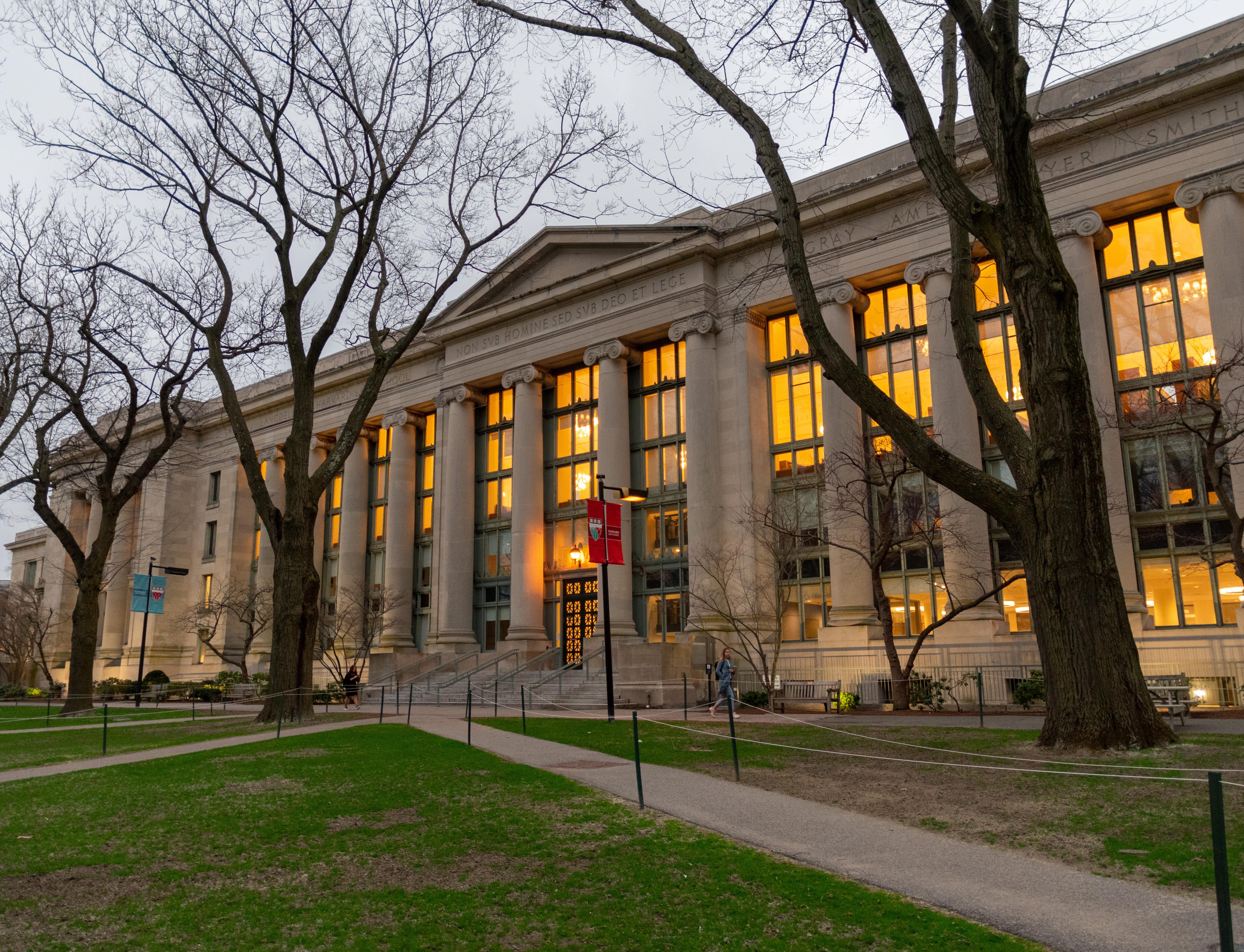
considerations.
One hour before interim Harvard President Alan M. Garber ’76 announced that Harvard Law School Dean John F. Manning ’82 will serve as interim provost, Manning hastily called a faculty meeting. He informed colleagues of Garber’s decision but assured them that he intended to return as HLS dean
a brief stay in the waiting room before getting the top job.
Or, Manning may be offered the provost job permanently.
Harvard’s presidential search committee may reach the same conclusion that it did in 2022: a conservative former clerk to Supreme Court Justice Antonin G. Scalia is not the right person to lead Harvard as it crafts new admissions procedures after its affirmative action policies were struck down as unconstitutional.
But in either scenario, Manning is unlikely to return to HLS — at least not yet, and perhaps not as dean.
“This is my 37th year as a law professor,” legal history professor Michael J. Klarman said.
stead.
A Top Presidential Contender
Even before Manning’s appointment as interim provost, many suspected that he would be a top contender in the search for Harvard’s 31st president.
Alongside Tomiko BrownNagin — dean of the Radcliffe Institute for Advanced Study — Manning was an internal finalist in the past presidential search process, which ultimately culminated in Gay’s selection in December 2022.
Several professors at the Law School said they believe Harvard Corporation Senior Fellow Penny S. Pritzker ’81 and
Spamann said that among the faculty there is a “widespread feeling that John Manning will be an actual candidate for president of the University.”
“I think it will be a good move for the University to make him president,” Spamann added. Richard H. Fallon Jr., an HLS professor who has focused on tive views could hurt his chances at the Harvard presidency, they could also be an asset at a time when the University is under fire from the right.
Conservative activist Christopher F. Rufo has attacked Harvard’s diversity, equity, and inclusion efforts and levied ac -
This is my 37th year as a law professor. I would be surprised if John Manning returns to the Law School.
He is Jewish at a time when the University is defending itself against accusations that antisemitism is running rampant on campus. Manning was also the first person in his family to graduate college and attend law school.
But Manning’s selection to lead the University would also give Harvard its 29th white male president and would be viewed by some as conceding defeat to critics who baselessly claimed that Gay, Harvard’s first Black president, was chosen primarily for her identity.
Klarman said that it “would be a mistake for Harvard to appoint a white male conservative because it seems like capitulating to pressure from the outside,” referencing the criticism from major donors and politicians that contributed to Gay’s ouster.
cusations of plagiarism against Black female scholars at the University. Meanwhile, House Republicans have launched an sponse to Hamas’ Oct. 7 attack
Manning’s identity will also idential search committee’s
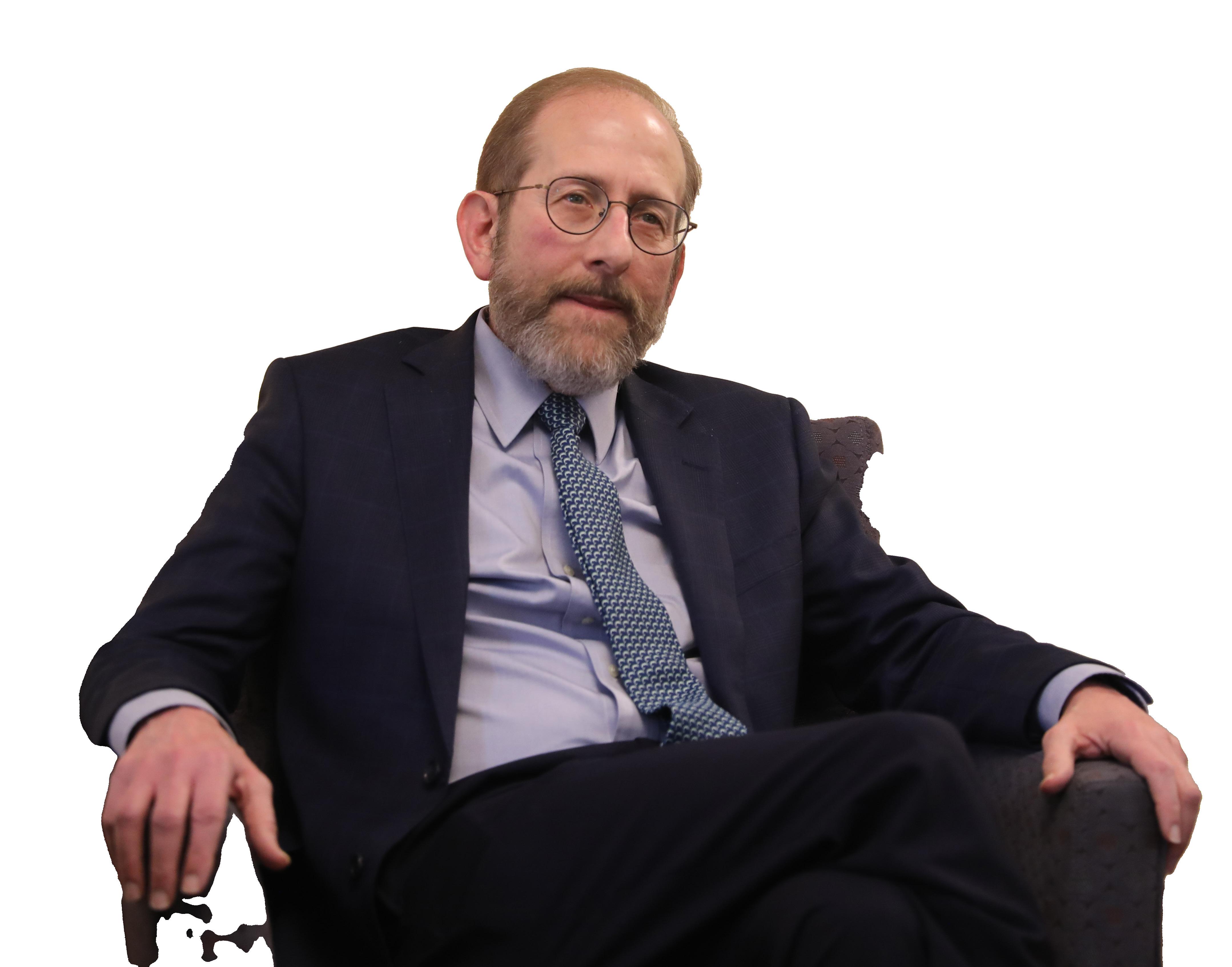
“I would do nothing to suggest that they have any real influence with Harvard University,” he added.
Some faculty members said they were concerned about the current lack of gender diversity in the University’s top administration and expressed hope that several women will be candidates in the later stages of the presidential search.
Still, it is possible that Manning’s biggest obstacle to the Harvard presidency is his genuine love for the Law School.
At the March 1 HLS faculty meeting, Manning cried as he talked about his devotion to the Law School and expressed gratitude for his colleagues.
HLS professor Noah R. Feldman said that Manning “did not see the deanship as a step to some further job.”
“He genuinely loved being dean and would have been perfectly happy for that to be the most distinguished institutional position he held in his career,” Feldman added.
‘Straight Shooter’
At the Law School, Manning was known as a “straight shooter” who enjoyed broad support with his faculty, but kept distance from the HLS student body and rarely engaged with the media. While Manning has sought to avoid some of the forward-facing responsibilities of a Harvard dean, he has earned respect for his work behind the scenes to bridge divides be -
tween faculty members and increase ideological diversity at HLS.
Manning himself joined the school in 2004, when former HLS Dean Elena Kagan recruited him as a part of a concerted effort to increase political diversity at HLS by hiring more conservative professors.
Harvard has been frequently criticized over the fact that its faculty is overwhelmingly liberal. In The Crimson’s 2023 survey of members of the Faculty of Arts and Sciences, more than 77 percent of respondents identified as either “very liberal” or “liberal.”
But even as the school has grown more ideologically diverse under Manning’s tenure, some HLS affiliates said that his administration’s leadership — including his deputy deans — was almost entirely white.
Still, faculty’s diversity has increased overall since Manning took over as dean.
In 2017, only 14 percent of tenured HLS faculty were people of color. In 2024, 20 percent of the tenured faculty are people of color.
Former HLS Dean Martha L. Minow wrote in a statement that she admires Manning’s “devotion to rigorous attention to all points of view and capacity to bring diverse groups together.”
Randall L. Kennedy, an HLS professor known for his scholarship on the regulation of race relations, wrote that Manning “has a marvelous ‘can do’ attitude, listens carefully, acts fairly, and shares his own extraordinary buoyancy to keep spirits high.”
“I have every confidence that he offers wise and energetic leadership at this fraught moment,” Kennedy added.
Manning has taken steps to promote a more social and intellectual community amongst faculty members. He opened a faculty lounge at HLS and created new programs such as faculty workshops and Supreme Court lunches, where professors meet to discuss recent rulings from the court.
Since the start of January, however, Manning has repeatedly canceled regular weekly meetings with the HLS faculty. Manning’s March 1 announcement that he would take a leave of absence from the school was the first faculty meeting of 2024.
HLS spokesperson Jeff Neal wrote in an emailed statement that the standing faculty meetings are canceled on a weekly basis “when there is no faculty business to conduct.”
Meanwhile, more than a dozen Law School students said that Manning does not maintain a large presence on campus and is relatively unknown to many students.
Manning’s tendency to keep a low profile faced criticism from some affiliates in the immediate aftermath of Oct. 7 when Harvard found itself at the center of controversy.
After the alleged assault of a Jewish student by another HLS student, over 94 Jewish alumni signed an open letter calling on Manning to take action to protect Jewish students.
At this time, Manning also faced calls from the student body to issue a statement condemning the harassment and doxxing of HLS’s Muslim students from right-wing groups in response to pro-Palestinian activism.
Swapnil “Swap” Agrawal, the HLS student government co-president, wrote in a statement that last fall the student government had “repeatedly asked Dean Manning to protect students from doxxing, harassment, and disciplinary consequences in retaliation for their speech.”
Manning and the HLS administration did not issue a public statement in response to either of these requests.
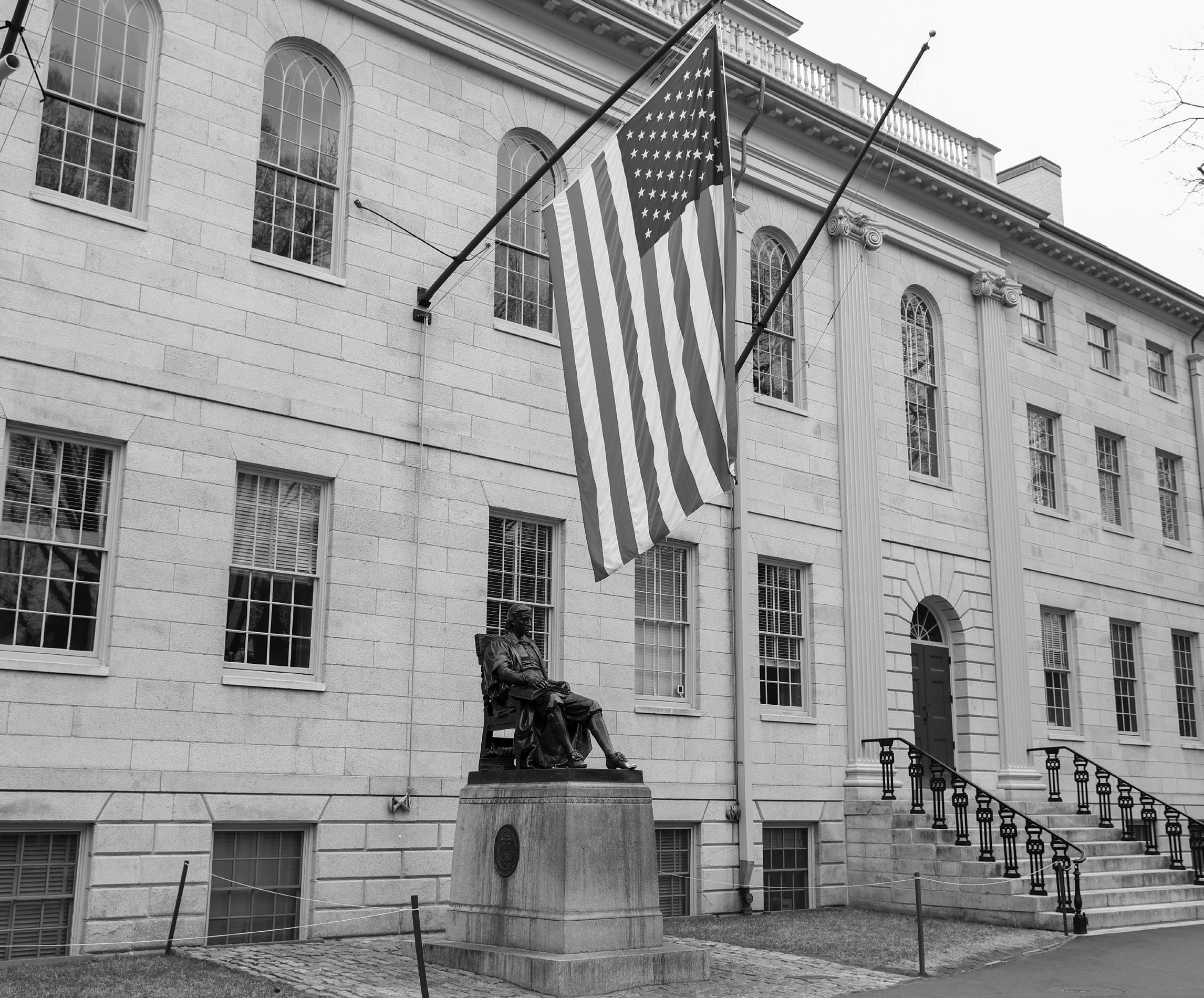
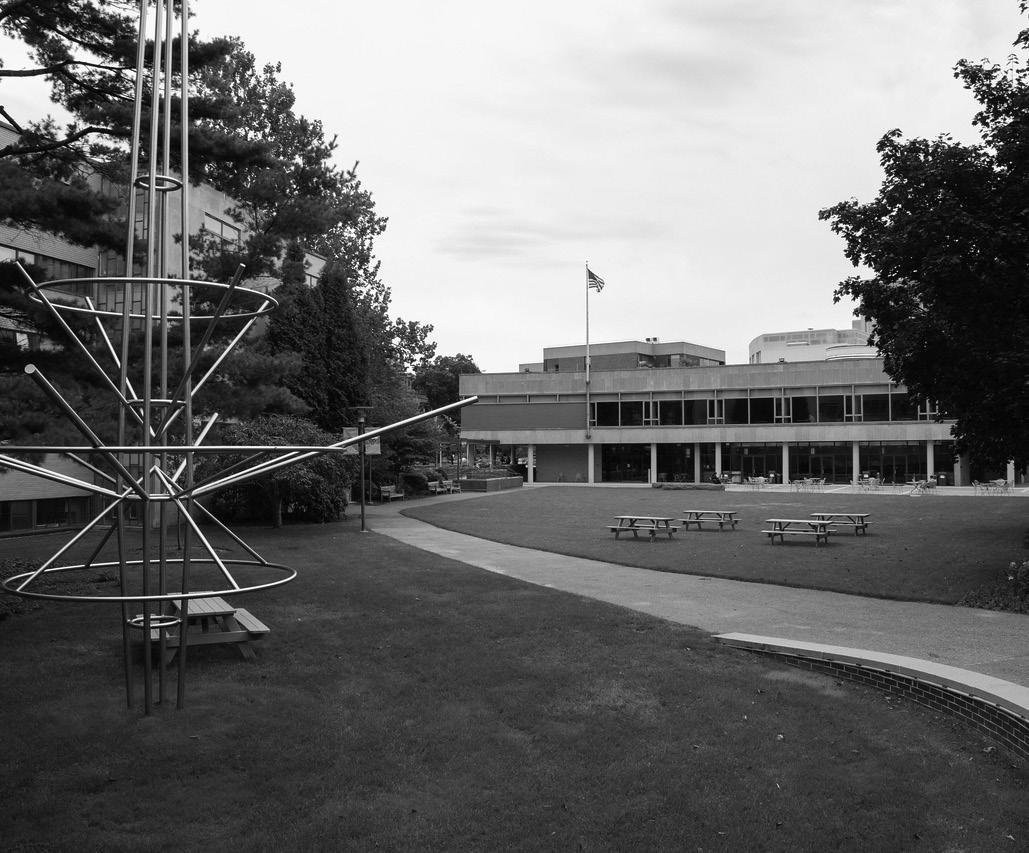
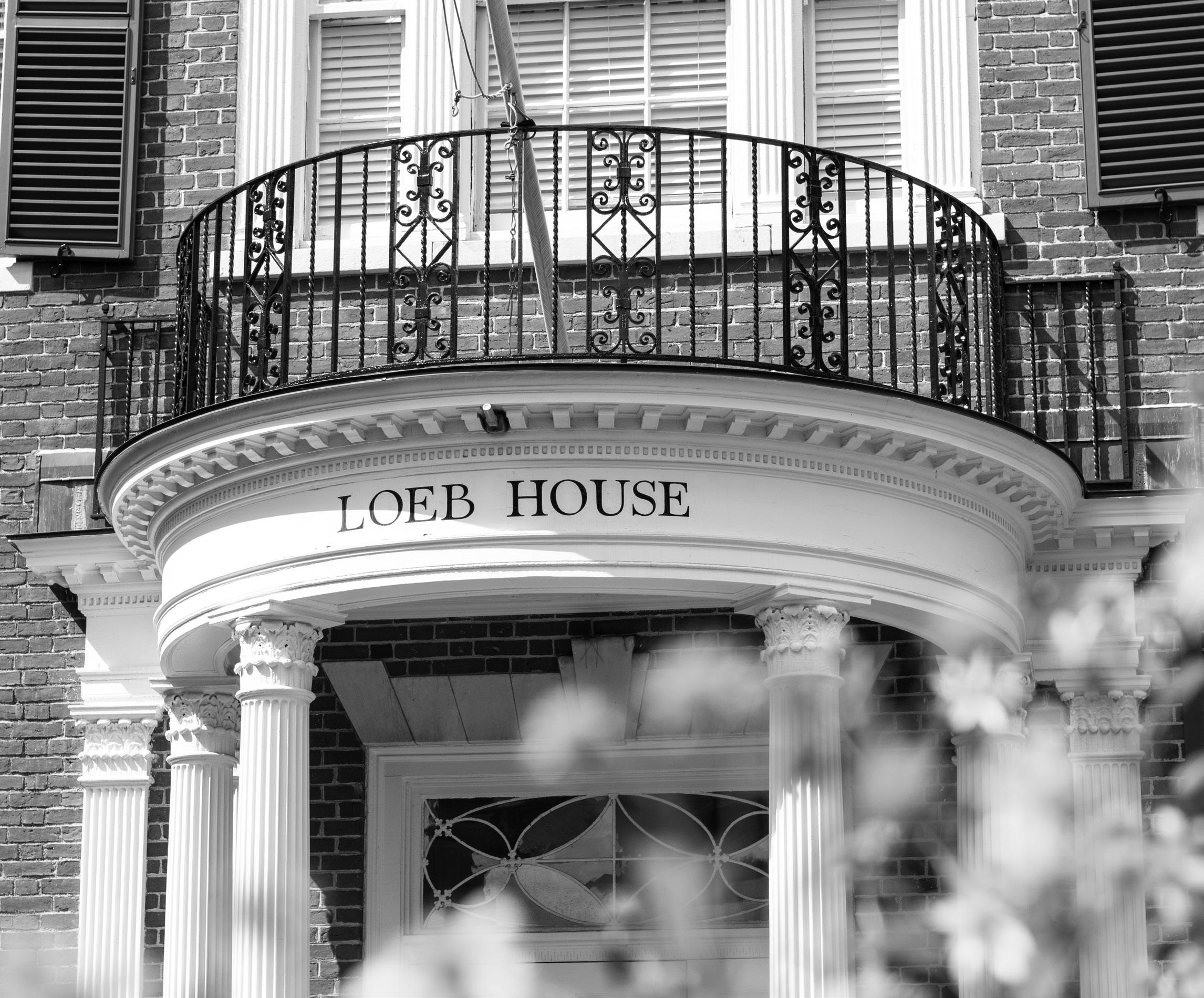
“I hope he keeps students’ requests in mind as he shapes University policies on academic freedom and civil discourse,” Agrawal wrote.
‘A Calming Effect’
Over spring break, Manning moved his desk into Massachusetts Hall where he will now work closely with Garber to guide Harvard out of its most tumultuous period in decade.
That assignment will consist of leading Harvard’s efforts to explore institutional neutrality, helping win back the support of disillusioned donors, and crafting policies to ensure faculty members are equipped to lead difficult classroom discussions even as the campus remains sharply divided.
In a March FAS meeting shortly after his appointment as interim provost, Manning said that he will take point on efforts to explore institutional neutrality and intended to prioritize fostering academic freedom at the University.
Garber described Manning as “an ideal individual” to lead efforts toward institutional neutrality, a nod to his leadership at the Law School where Manning made a point of not commenting on political topics.
At HLS, Manning initiated the Rappaport Forum, a lecture series dedicated to fostering civil discussions on divisive issues and implemented “Chatham House Rules,” a non-attribution policy to safeguard student opinions from external scrutiny.
Feldman said he expected Manning’s efforts at institutional neutrality to be similar to his approach as dean when “he really bent over backwards to avoid committing the Law School, through him, to any particularly contentious position.”
Several prominent alumni and donors said they welcomed Manning’s appointment and said they expected it will help bring “calmness” to an institution that desperately needs it.
“Of all the deans, he is somebody who stands out on the short list of people who are well regarded,” Michael A. Allen, a donor to the Law School, said.
Paul A. Buttenweiser ’60, a longtime donor to Harvard and a former member of the Board of Overseers, said that Manning
The test will be what actions are taken by President Garber and Provost Manning to correct the problems that have existed.
Peter L. Malkin ’55 Harvard donor
“will have a calming effect on many of the alumni who are upset with one thing or another.”
Peter L. Malkin ’55, a prominent University donor for whom the Malkin Athletic Center is named, said he believed Manning’s elevation to the provostship was “a step in the right direction” for Harvard.
Malkin compared Manning’s appointment to the selection of Derek C. Bok as Harvard’s 25th president in 1971.
Bok was serving as HLS dean when he was tapped to succeed Nathan M. Pusey, Class of 2028, as president of Harvard. Pusey’s tenure came to a premature end as the campus was deeply divided over the U.S. involvement in the Vietnam War.
“The test will be what actions are taken by President Garber and Provost Manning to correct the problems that have existed,” Malkin added. mac.healey@thecrimson.com saketh.sundar@thecrimson.com
THC
Read more at THECRIMSON.COM
Ajudge rejected Harvard’s motion to dismiss a lawsuit by former Harvard Business School associate professor Benjamin G. Edelman ’02 in a ruling on Monday.
Edelman, who was a tenure-track professor at HBS from 2007 to 2018, sued Harvard in 2023, alleging the University mishandled his tenure review process and unfairly denied him tenure at the school.
Edelman became the subject of public controversy in 2014 after he engaged in a dispute with a Brookline Chinese restaurant that overcharged him $4 as part of a $57.35 bill. In his lawsuit, Edelman alleged that the incident with the Chinese restaurant factored into Harvard’s decision to wrongly deny him tenure at the Business School.
Judge Hélene Kazanjian’s ruling on Monday preserved all three counts of the lawsuits and stated that if Edelman’s allegations are true, Harvard may have breached its contract with him.
As such, Kazanjian allowed the case to move forward to discovery, the process by which Harvard and Edelman can obtain information related to the case to “determine whether the review process met reasonable expectations.”
“My lawsuit is about following the rules,” Edelman said in an interview on Monday. “HBS has a policy for investigating facul-

ty, and I want nothing more nor less than for that policy to be followed the way it was written.”
In discovery, Edelman will receive access to the evidence gathered during the tenure review process, which Edelman says he was entitled to under the original policy. “I’m particularly looking forward to discovery because Harvard has withheld so much information from me,” Edelman wrote in a statement published on his website. “I will demand the entire corpus from which these quotes were taken,” Edelman added, referring to anonymous quotes presented as evidence an internal HBS report which he said im-
pugned his character.
“With this information, I will no longer have to speculate about what these speakers might have been talking about,” Edelman wrote. “At long last, I will be able to say for sure — putting me on track to defend myself in substance and without resorting to hypotheticals.”
An HBS spokesperson did not respond to a request for comment.
The case is one of multiple employment-related lawsuits HBS is currently facing. Embattled Business Administration professor Francesca Gino has alleged similar treatment, claiming that Harvard invented a new policy specifically to target her after she became the
subject of data fraud allegations. She is currently suing Harvard and a data investigation blog for $25 million. Edelman pointed to deeper flaws in the Business School’s administration as the underlying cause of his suit. “HBS, on its face, appears to be a very well-run place,” Edelman said. “But underneath this facade of how beautiful and perfect HBS is there’s this slightly unpleasant undercurrent of things that are not quite right, that are broken.”
“Following their own policies is one of those broken things,” he added.
Mažar and three other prominent business school professors was retracted in 2021 following allegations that the paper contained fraudulent data. The infamous study claimed to show that asking respondents to sign a form before filling it out reduced the likelihood that they would lie.
The HBS report indicated that Gino specifically pointed to Mažar as “the most likely actor with malicious intentions,” as well as both the means and motive to manipulate the data.
Andrew T. Miltenberg, an attorney representing Gino, wrote in a Tuesday statement following this article’s publication that it is “important to remember that Prof. Gino was limited in her ability to defend herself as Harvard prevented her from finding out what really happened.”
“They gave her little time to digest the analyses from the consultant HBS hired, and did not provide her any forensic experts,” Miltenberg added. “Since then, Prof. Gino has since been able to hire forensic expert support, and we are excited to present this information in a court of law as a part of her defense.”
Gino claimed the act was in retaliation for her allegedly insufficient defense of Mažar from criticisms about the 2012 study. According to the report, Gino claimed Mažar had access to her Qualtrics account, the platform used to collect and access data from the study.
Gino cited correspondence indicating tension between the five co-authors of the 2012 study after they began trying to replicate its findings one year before the first allegations of data fraud.
According to the report, Gino claimed that Mažar had said to her, “You’re going to hurt
as much as I do.”
Still, the Business School report concluded that though it was possible the discrepancies were due to a malicious actor, the evidence indicated that it was not plausible.
The report said that Gino “provided no evidence that anyone accessed her Qualtrics account or her computer’s hard drive for the purposes of falsifying data at any time” and that there was no evidence that Mažar, “her prime suspect, had any of her login credentials or access to her laptop.” Additionally, the report noted that Gino was the only person involved in all four studies under examination.
The investigation concluded that Gino had “engaged in multiple instances of research misconduct,” and the faculty committee called for a correction of the scientific record, an audit of Gino’s work, and that HBS Dean Srikant M. Datar immediately place Gino on unpaid leave and initiate proceedings to terminate her from the University.
Gino has rejected all allegations of research misconduct against her. “I just need to say that I did not — ever — engage in academic fraud,” Gino said in a statement on her website on Friday. In the statement, Gino slammed the case against her as “weak” and composed of “bogus allegations.”
Gino is currently engaged in a $25 million legal battle against Harvard and Data Colada, accusing the University of gender discrimination and alleging that Harvard and Data Colada conspired to damage her reputation with false accusations. The lawsuit awaits its first major ruling.
and Harvard Graduate School of Design Dean Sarah Whiting allegedly “retaliated against” Wang after she raised discrimination complaints.
In September 2023, Whiting and GSD administrators denied Wang a review that would allow her to continue teaching at the University past the expiration of her contract in June 2025, according to the complaint.
Wang is seeking a court order to require that she be “reviewed and considered for a promotion to Professor in Practice” and at least $1.1 million in damages, according to court filings.
Kayden did not respond to multiple requests for comment. Through a spokesperson, Whiting and the University declined to comment, citing a policy against commenting on ongoing litigation.
Wang’s complaint alleges that Kayden displayed disrespectful behavior towards Wang as early as 2008, when she was a lecturer in Urban Planning and Design.
The suit also claims that Kayden sought repeatedly to oppose Wang’s promotion to Associate Professor of the Practice in 2012. Kayden allegedly asked GSD administration to conduct a student survey on her promotion, a move the Faculty Affairs Office found to be “discriminatory against Dr. Wang as an Asian woman, given that it had never been used for other faculty appointments,” the suit reads.
In an email to The Crimson on Monday, Assistant Dean of Faculty Affairs and Title IX coordinator Pamela H. Baldwin disputed the account in Wang’s complaint.
“In 2012 the GSD did not have a faculty affairs office,” Baldwin wrote. “At that time, there was a director of faculty planning who reported to the executive dean.”
Other complaints against Kayden include his “interfering with” the timing and naming of Wang’s courses, omitting Wang’s name in discussing her courses with faculty, and an “illogical and discriminatory desire” to eliminate one of Wang’s courses on real estate in China, per the lawsuit.
“Professor Kayden inexplicably told Dr. Wang that he intended to discontinue the course because he did not think that anyone ‘would be interested in China or [your] course,’” the suit reads. The course ultimately remained on the GSD course catalog for fall 2023.
In addition to complaints against Kayden, the lawsuit alleges that GSD administrators “took no steps to address, correct, or investigate” Wang’s repeated claims of discrimination.
At a September 2023 meeting in which Wang detailed her complaints of discrimination, Whiting allegedly “question[ed] how Professor Kayden
In a meeting about renewing Wang’s position that year, “Professor Kayden leaned back in his chair with his feet crossed on his desk throughout the entire meeting,” according to the suit. “His posture was disrespectful and dismissive of Dr. Wang.”
could discriminate against Dr. Wang as an Asian woman when he worked well with another Asian female faculty member,” according to court filings.
Wang alleges that Baldwin was “openly dismissive” towards her concerns in a meeting the next day, claiming that Baldwin told her “Professor Kayden was in a ‘very important and respectable position.’”
Baldwin did not address the September 2023 exchange in a Monday email to The Crimson.
In October 2023, Wang sent a letter to Whiting formally requesting a review and outlining her complaints of racial discrimination, according to a court filing.
Kayden allegedly confronted Wang about the request the next morning.
“‘You barked up the wrong tree,’” Kayden said, according to the court filing. “‘If you continue doing this to me, I will go after you. I don’t want that to happen to you, Bing.’”
Wang’s lawsuit comes six years after GSD affiliates circu
When the class of 2026 was sorted into upperclassmen Houses one year ago, some students immediately began planning their transfer applications.
Just after being assigned to Pforzheimer House, which is located in the Radcliffe Quadrangle, June Lee ’26 and her blockmates considered transfer options.
“We were actually discussing, ‘Should we submit a late medical form to move to the river?’” Lee said of her Housing Day experience. “But we were like, ‘You know what, let’s give Pfoho a shot and we’ll just definitely put in a transfer request.’” Lee applied to transfer to several River Houses for the fall 2024 semester, and was notified last month that she would be transferring to Adams House. In the first round of fall interhouse transfer, 142 students applied, according to a spokesperson for the Housing Office.
Students are required to live in their Houses for two full terms before transferring. There are three transfer application windows, one in the fall semester and two in the spring semester.
“Ultimately, the distance was too much for me, and also I didn’t have much house community,” said Lee. “So I didn’t really feel any remorse applying for a housing transfer.”
In addition to the inconvenience of the Quad’s location — which is distant from most classes and extracurricular commitments — some students noted safety concerns as an additional incentive to transfer closer.
However, Crimson Arts editor Aiden J. Bowers ’26 said he was “really happy” when he was accepted to transfer into the Quad — from Mather to Pforzheimer House.
“I like the Quad lawn, the aesthetic of the Quad. I also have heard and seen lots of great things about the community,” Bowers said. “It made me realize that it’s really something that’s pretty special — a really cool sort of solidarity, and a really welcoming place.” Some other students who applied to transfer houses heard back that their application was unsuccessful. Jōsh P. Mysoré ’26, along with two of his roommates, applied to transfer from Pforzheimer House to one of several River House options.
The interhouse transfer application allows students to rank their preferred Houses, as well as select from several multiple-choice options to indicate their reason for transferring.
Mysoré said he wished the transfer application allowed for a more detailed explanation of one’s reason for wanting to transfer, instead of only a selection from one of several pre-written selection boxes.
“To some extent it has to be random, especially for people transferring from the Quad to the River — there’s going to be a surplus,” Mysoré said.
“The number of approvals is based on the number of available slots that Houses have, so that number will vary from year to year,” College spokesperson Jonathan Palumbo wrote in an emailed statement. “People apply for interhouse transfers for a range of reasons, and they are self-reported.”
Miao also said that there should be more room to elaborate one’s reason for transferring on the application, as she felt that this change would add more “humanity” to the random process of
“I do have a bike, so that’s helpful, but I still found it kind of challenging to bike back every night,” said Emma Y. Miao ’26, who transferred from Cabot House to Adams House. “I ended up falling off my bike — I’ve fall off my bike multiple times. Maybe it was my clumsiness, but I did want to avoid further situations in the future.”
selecting whose application will be successful.
“I think the process right now is very robotic,” Miao said. “It seems like it’s a machine picking the spots, and it would be nice, even if you end up getting rejected or accepted or whatever it may be, to have room to say more about your reasoning.”
The transfer application only allows students to apply individually or as part of a pair. As such, some blocking groups needed to split up. Talia A. Natterson ’26, who applied to transfer from Cabot House to Adams House like several of her blockmates, was successful. However, the rest of her blockmates’ applications were denied.
“It obviously makes sense that they want a more limited number of people moving from house to house, but at the same time, I love my blockmates,” she said.
Taryn M. Riddle ’25 was denied in last year’s fall transfer round, but applied in a subsequent cycle and was accepted to transfer from Currier to Dunster House.
“You just have to treat it like a lottery — you either get it, or you don’t. I know a lot of people who were denied transfers and a lot of people who got them, a lot of people who got their second or third choice or something,” she said of the application process. “You never know.”
There are two Harvard Diversity, Equity, and Inclusion programs: The one you read about in the press, and the one that actually exists.
Since October, Harvard’s leadership crisis has touched many issues, from antisemitism, to free speech, to plagiarism, to corporate governance. The criticism that connects them all? DEI has gone too far at Harvard, and it’s compromised the University’s commitment to excellence.
As students who actually engage with Harvard’s DEI programs we feel obliged to set the record straight: A DEI leviathan does not control our University from the shadows.
Don’t take our word for it — you can look for yourself. Each of the University’s diversity, inclusion, and belonging units prominently feature links to staff directories. Most have only a handful of names.
Big-picture, Harvard has a central Office for Equity, Diversity, Inclusion & Belonging that deals with University-wide programming and coordinates the individual school units, which largely provide tangible student services, like the College’s Office of BGLTQ Student Life and the Women’s Center.
Even if you come away from your staff directory deep dive convinced that Harvard engages too many staff for its inclusion efforts, the point remains: They hardly spend their time handpicking Universi-
ty Presidents, controlling disciplinary outcomes, or otherwise pulling the strings at this University.
These offices certainly do not loom large in our daily lives — many of us rarely interact with them at all — but when we do, we often benefit in real, meaningful ways.
Among the events and initiatives funded by Harvard’s DEI offices are: The First Year Retreat Experience pre-orientation program, which provides incoming first-generation and low-income students with guidance on navigating Harvard; the Cultural Rhythms Festival, a multi-day celebration that features performances, food, and other events; funding for medical textbooks that more accurately represent the wide range of human body types; and lectures from high-profile speakers like former United States Attorney General Loretta E. Lynch ’81.
DEI efforts like these plainly do not mean we “blew up the excellence model,” as some outsiders have suggested. In fact, programming of this kind enables excellence, helping to ensure that talented students from backgrounds underrepresented at elite colleges can nevertheless flourish there.
It’s no coincidence that study after study has demonstrated that more diverse teams aren’t just more inclusive — they’re more successful.
Though many of the most ubiquitous critiques are ill-founded, Harvard’s DEI programs do fall short in important ways.
A meager 23 percent of tenured faculty are non-
white. More than two-thirds of students come from the top 20 percent of the income distribution. And despite more than half a century of student interest, Harvard has yet to establish an Ethnic Studies department.
More recently, controversies over student protest have loudly reminded us of the tricky questions that arise when a commitment to free expression encounters value frameworks hostile to speech that they regard as inflicting real harm. To the extent that DEI programs share or contribute to such frameworks, they can conflict with our commitment to academic freedom.
Reasonable people can disagree over how best to address these deficiencies and deliver on lowercase diversity, equity, and inclusion. For instance, University Professor Danielle S. Allen has raised concerns that OEDIB efforts don’t adequately incorporate religious identity and can prove divisive, while others vocally defend the DEI status quo.
Rather than keep quiet about DEI altogether — the University is still yet to comment publicly on criticisms of its DEI programming — Harvard should openly engage about its practices and make itself a forum for discussing these difficult questions.
To be clear, open engagement cannot mean uncritically acceding to the larger assault on honest conversations about identity and power in America.
We have heard this story before — the only difference is the three letters in the acronym. Before DEI, the right used Critical Race Theory to raise the spec-
ter of so-called wokeness infiltrating American education. Also like CRT, DEI has real value. Critical Race Theory helps us understand how racism pervades American institutions to this day; DEI done well provides a roadmap for improvement. (They’re certainly not “an existential crisis to the United States” as Christopher F. Rufo would have you believe.)
Such attacks on these frameworks draw attention away from the necessary work of grappling with systemic racism, and they’re not limited to universities. Nationally, state governments have considered more than 300 bills limiting what can be taught in K-12 education with many focused on so-called “divisive concepts” or topics related to race and racism. In Oklahoma, a 2021 law went so far as to encourage teachers to avoid even using the term “diversity.”
DEI efforts are far from perfect. But it helps nobody to imagine monstrous flaws that don’t exist. Realizing the ideals of DEI requires we critique and improve the system we actually have.
–This staff editorial solely represents the majority view of The Crimson Editorial Board. It is the product of discussions at regular Editorial Board meetings. In order to ensure the impartiality of our journalism, Crimson editors who choose to opine and vote at these meetings are not involved in the reporting of articles on similar topics.
After ruling last summer that Harvard’s use of racial preferences was unlawful, the U.S. Supreme Court upended a college admissions regime that had been in place for nearly half a century.
Despite uncertainty about how admissions officers have adapted to this landmark decision, the process has remained opaque. Last year, Harvard revealed information about the racial and socioeconomic characteristics of the student body in late March, but this year it plans to delay disclosure of the racial data until the summer. These data will provide important clues as to what traits Harvard’s admissions officers have been prioritizing among applicants.
As an expert witness in the litigation against Harvard, I worked with Duke University economist Peter Arcidiacono to examine ways Harvard could maintain high levels of racial diversity without using racial preferences.
We demonstrated that if Harvard eliminated its unfair admissions preferences for wealthy students and gave a meaningful boost to highly qualified students from disadvantaged and working-class families and communities, it could reduce its economic stratification and maintain high levels of racial diversity and superb academic standards.
Under the prior, and now illegal, system of racial preferences, Harvard created a class that was racially diverse, but economically segregated. A majority of students admitted to Harvard in recent years have been non-white — a welcome development — but at the same time, the student body continued to have nearly 15 times as many rich students as low-income students.
While the Supreme Court ruling proscribed Harvard’s use of racial preferences, the University has been under no legal obligation to adopt alternative paths to diversity. As the data trickle out over the coming weeks and months, I will be looking to see which of three major patterns emerges.

EMILY N. DIAL — CRIMSON DESIGNER
preme Court recently signaled it supports.
In subsequent op-eds for The Crimson, I will comment on the racial and economic diversity statistics Harvard reveals, and on possible changes it might consider in the future. For now, one can hope that Harvard has finally committed itself to opening up the University, at long last, to promising young students from all walks of life. OP-ED
The worst-case scenario: Harvard’s underrepresented minority numbers plummet and socioeconomic diversity remains abysmal. Harvard’s expert witness said that if the College were to stop using race — and adopted no alternative steps to boost diversity — its share of admitted Black students would fall from 14 percent to six percent. By continuing to provide preferences for the rich and failing to provide additional consideration for less-advantaged applicants, the University will have forsaken its longstanding rhetoric that diversity is the “hallmark” of a Harvard education.
Another seemingly better, but still not optimal, scenario: Harvard could report that its racial diversity numbers remained high, but its economic segregation persisted. This would align with trends from previous years, suggesting that Harvard continued to do what it has been doing for decades: employing large racial preferences and preferences for the wealthy.
In response to this accusation, Harvard might claim that it complied with the Supreme Court’s ruling by considering student discussions of race in their personal essays, which the Court permits. But as I have previously explained in the Journal of College and University Law, both the majority and the dissent in the Harvard case made clear that the personal essay “loophole” is exceedingly limited.
To comply with the law, Harvard has to apply the qualities it identifies as valuable in a consistent fashion across racial groups.
Suppose Harvard said that the reason it had admitted Black and Hispanic students in large numbers was that their essays demonstrated they had overcome the adversity of racial discrimination, demonstrating values the university sought like perseverance and resilience — wholly legitimate criteria. Harvard would also have to provide similar extra consideration to students of all races who showed resilience by overcoming other types of ad-
versity, like economic disadvantage. If Harvard remains racially diverse, but shows no noticeable rise in economic diversity, it would suggest an inconsistent application of the boost for students who had overcome obstacles. In other words, a covert racial preference. If it looks like Harvard is cheating by using the personal essay in a way not legal under the Court’s ruling, it could land back in litigation. The legal proceedings could end up having a chilling effect on other universities who wish to employ a legitimate use of the personal essay, thereby setting back diversity efforts for universities across the country. There is a third, best case scenario: Harvard’s new data would show that it maintained racial diversity and boosted socioeconomic diversity. This result would suggest that the admissions office employed authentic race-neutral strategies of providing a preference to economically disadvantaged students of all races and to students from economically under-resourced high schools — an approach that the Su-
–Richard D. Kahlenberg ’85 is the director of the American Identity Project at the Progressive Policy Institute. He was an expert witness for Students for Fair Admissions in its lawsuit opposing Harvard’s use of race in admissions.
This piece is the first installment in a series that will provide analysis and commentary on the culmination of Harvard College’s first admissions cycle following the United States Supreme Court’s curtailment of race-conscious admissions.


OP-ED
For a discipline that seeks to understand the experiences of up to one-in-four Americans and 1.3 billion people worldwide, there is a glaring lack of disability education on Harvard’s campus.
This academic year, only two Harvard undergraduate courses included the word “disability” in their title. In response to the lack of course offerings, in 2022, the Harvard Undergraduate Disability Justice Club called for the creation of a disability studies department.
Harvard’s lack of disability education is not unique, but its resistance to fixing it is. In 2023, UCLA offered a disability studies major for the first time, and campuses across the nation have created disabilities studies minors. Despite efforts from groups like HUDJ, these goals have yet to materialize at Harvard.
To better understand the case for disability studies, we can look to the decades-long fight for ethnic studies at Harvard and beyond. Ethnic studies, like
disability studies, centers the experiences of marginalized students and communities, carving out academic spaces where students so often neglected by universities can feel that they belong.
But, to be clear, ethnic studies is far more than an affinity space. A discipline in its own right, ethnic studies teaches unique theoretical approaches to understanding the histories, narratives, and interactions of and between minority groups in the U.S.
The same is true of disability studies.
Disability studies is not just a conglomeration of courses about disability — it is also a field that offers frameworks for an interdisciplinary analysis of access, impairment, and how disability is socially and legally constructed in societies. More fundamentally, disability studies investigates how structural power impacts our bodies and our spaces.
Unfortunately, many Harvard undergraduates won’t ever encounter it.
The University’s reluctance to create an ethnic studies concentration — much less any kind of disability studies program, degree, department, or cer-
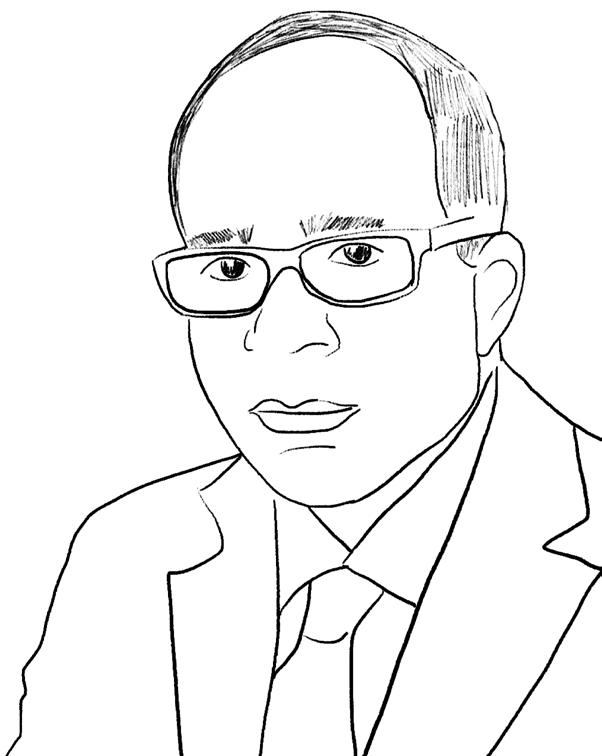
“What’s happening to Jewish students and faculty at several elite campuses is so comprehensive and all-consuming that it can only be described as systemic antisemitism,” wrote New York Times columnist David A. French last week.
In reaching this sweeping conclusion, French relied heavily on a complaint filed in federal court against the President and Fellows of Harvard College. The complaint alleges that Harvard has discriminated against Jews and subjected them to a hostile environment, thereby violating Title VI of the Civil Rights Act.
The plaintiffs assert that Harvard is “a bastion of rampant anti-Jewish hatred and harassment” and denounce what they characterize as the University’s “abject failure and refusal to lift a finger to stop and deter this outrageous antisemitic conduct.”
French urges his audience to read the complaint. I have. I find it to be self-discrediting. It is glaringly tendentious and obviously hyperbolic, and its inattentiveness to important distinctions makes me deeply skeptical of its central claims. Worse, its principal objection — that Harvard has neglected to ban and punish what the complaint deems to be antisemitic speech and expression — poses a direct and serious threat to academic freedom.
French correctly states that “one should always use caution” when evaluating complaints generated by litigation because they only “represent the allegations of one side.” He then proceeds to disregard his own advice by credulously embracing the complaint’s story without qualification.
To be sure, some features of that story, if substantiated, are deeply troubling. Students reportedly disrupted library study and classroom instruction with impunity. Professors reportedly discriminated against Jewish, Israeli, and Zionist students. Administrators reportedly applied rules inconsistently.
But even assuming the accuracy of the complaint’s allegations, do they add up to the hellish nightmare that the plaintiffs’ attorneys depict? Hardly.
The complaint conclusorily characterizes episodic instances of misconduct as a signal of hostile and prejudiced university leadership. But Harvard is a big place with thousands of students, professors, and staff. In the absence of far more evidence and argument than the complaint contains, the documented instances of antisemitic bigotry that it lists ought not be interpreted as signs that the University itself is culpable.
The plaintiffs’ lawyers dig into Harvard’s record for anything that might conceivably contribute to a portrayal of a university awash with animus against Jews. But their careless excavation undermines their aim.
For instance, they point to an incident in May 2018 in which a swastika was discovered on a bul-
letin board. They declare pointedly that “Harvard took no disciplinary action in response.”
But they neglect to mention whether anyone was identified committing the defacement. If the administration couldn’t identify the culprit, it is difficult to see how Harvard was blameworthy. The complaint is dotted with similar obfuscations.
Much more concerningly, the complaint argues that Harvard abets, enables, and contributes to antisemitism because it has declined to ban or punish the expression of certain ideas.
The plaintiffs’ lawyers suggest that any student who supports Hamas or forcefully condemns Israel is necessarily involved in harassing and discriminating against Jews. The complaint argues that mere advocacy of these positions is therefore intolerable and that by permitting such advocacy Harvard discriminates against Jews in violation of federal law.
That logic lays the groundwork for censorship that would grievously diminish the intellectual freedom and vitality that have made Harvard and peer institutions rightly celebrated around the world.
Yes, Hamas is horrendous and its conduct barbarous. But, as professor Nadine Strossen ’72, professor Steven A. Pinker, and a host of other evangelists for academic freedom have bracingly insisted, the university is a place where even the most odious ideas should be refuted, not banned.
The lawsuit against Harvard is part of a campaign to coercively narrow the ideological spectrum of tolerated discussion about the Israeli-Palestinian conflict. The theory of the plaintiffs is that toleration of “antisemitism” is tantamount to establishing an unlawful educational environment. The implications of that theory are frightening. According to the plaintiffs, for example, “anti-Zionism is antisemitism.”
Given legal force by the courts, that proposition would expel from discussion a large body of work by serious intellectuals, including writings by Jewish anti-Zionists.
I am concerned that so many Jewish members of the Harvard community feel distress, and I am disgusted by bigotry of all forms. Any harassment, threats, or assaults targeting Jews on the basis of their identity ought to be repudiated by all.
Revulsion against antisemitism, however, does not justify the institutional slander perpetrated by the authors of the complaint against Harvard. Nor should revulsion against antisemitism be allowed to impinge upon academic freedom.
The lawsuit against Harvard seeks to make censorship of ideas by the University into a policy required by federal law. One can only hope that Harvard will succeed in convincing the judiciary to reject that awful, dangerous suggestion.
–Randall L. Kennedy is the Michael R. Klein Professor at Harvard Law School. His column runs bi-weekly on Thursdays.
tification — reflects its continuing neglect of both student demands and scholarship that falls outside the Eurocentric disciplinary mainstream. Without Harvard’s support, students interested in such fields are forced to search for courses on disability strewn across disparate departments or in the various graduate schools. Oftentimes, students can’t receive credit for these courses, either because they don’t fit into their concentration or because College departments are often reluctant to offer degree credit for graduate school courses.
Students have long been fighting for curriculum overhauls, beginning with the 1968-1969 strike at San Francisco State College, which led to the creation of the country’s first ethnic studies department. Three years later, the first proposal for a similar field at Harvard was put forward by Harvard History professor John Womack Jr.
Despite over five decades of student and faculty organizing, only recently have tangible strides been made toward the formation of an ethnic studies con-
centration. Pressure from Harvard’s student organizers led to the establishment of an Ethnicity, Migration, Rights secondary in 2009 and an Ethnic Studies field within the History & Literature concentration in 2017. Disability advocates must work alongside the ethnic studies movement and increase pressure on administration to address the paucity of courses on disability and continue to push for the formation of a disability studies department.
Granted, disability studies has not always lived up to its stated goals. The overrepresentation of white scholars and advocates in the disability rights movement makes this cross-disciplinary framework all the more timely and essential.
Both ethnic studies and disability studies connect theory with community and knowledge with action, challenging the ways we are trained to see the world. At Harvard, it’s time we give both the attention they deserve.
GRADE INFLATION. It’s insane that
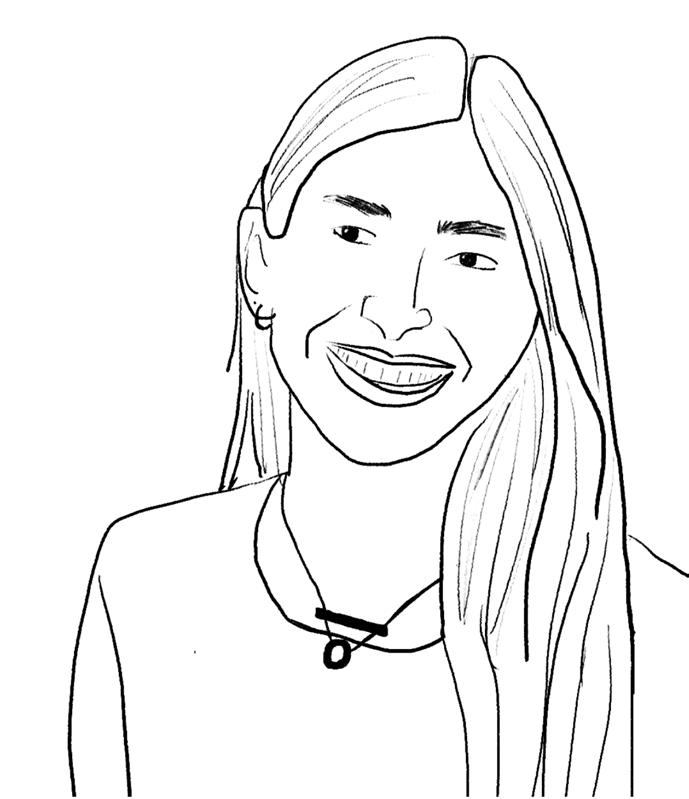
Attention! If you or a loved one have received a B-plus on your transcript, you may be entitled to financial compensation. We, the Concerned Harvard Undergraduates ty.” Let’s not kid ourselves. We’re not some bastion of intellectual excellence or a hub of vibrant ideological discourse or whatever. Our school exists for one reason only: to help students get
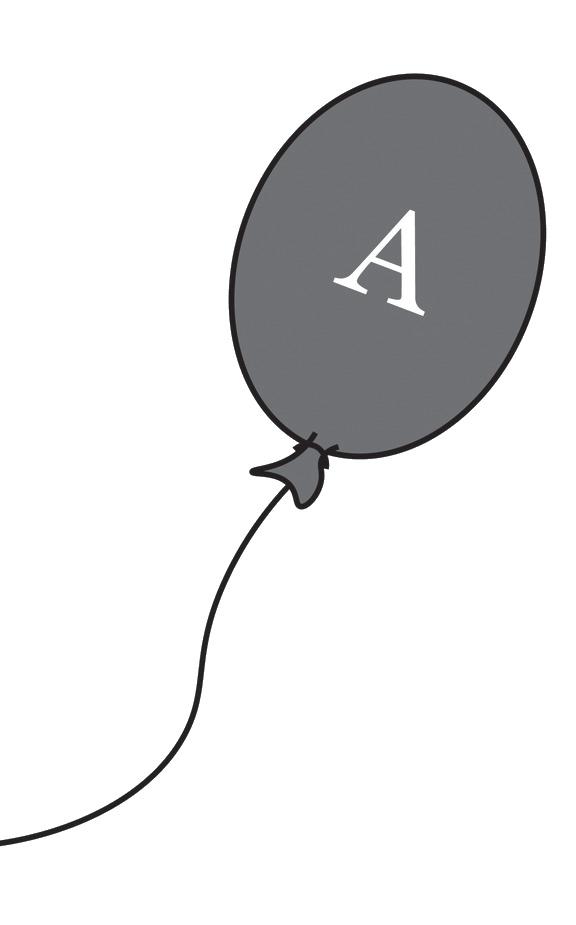
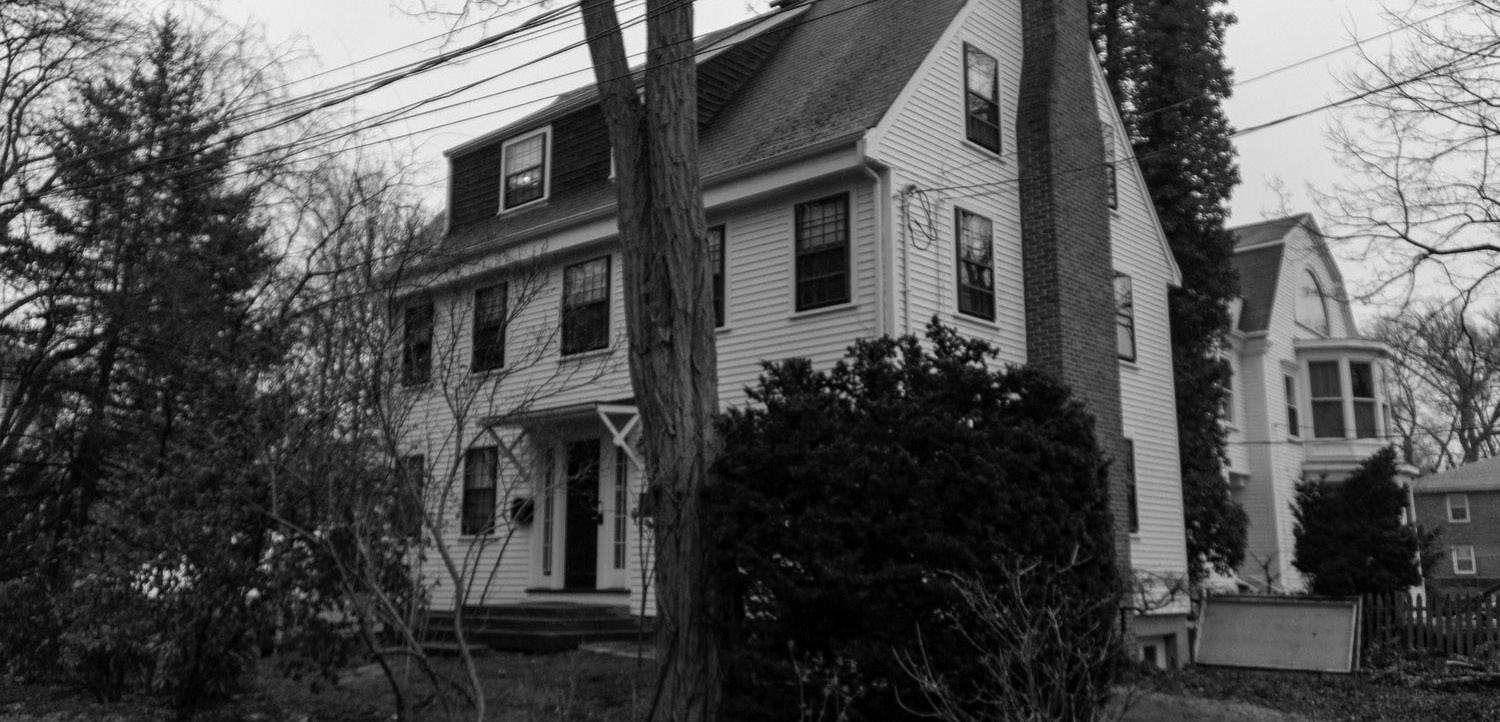
ment on the order.
The Fox, a Harvard final club, is embroiled in a legal dispute with its neighbors just months after temporarily moving to a residential Cambridge area while its clubhouse at 44 John F. Kennedy St. undergoes renovations.
The dispute led the Fox to seek a harassment prevention order against one of its neighbors and prompted the City of Cambridge to issue a cease and desist order to the owner of the property being rented by the club, demanding that the Fox leave the neighborhood “immediately.”
The Fox moved into the rented home at 6 Francis Ave. two
months ago, where it has hosted regular parties during the day and at night. According to a Feb. 18 police report obtained by The Crimson, neighbors placed at least eight calls complaining about “loud music” from the Fox. City Building Commissioner Peter McLaughlin demanded in a cease and desist order to the owner of the property that the Fox’s activities must halt immediately or else “further steps may be taken.”
McLaughlin cited zoning codes, writing that the building is located in a Residence A-2 zoning district and “fraternal sororal meeting facility is not allowed outside of Institutional Use Overlay Districts.”
Members of the Fox, including its president and two men who answered the door at 6 Francis Ave., declined to comment on the cease and desist order. Emma C. Wolbach, a Florida resident who owns the property, did not respond to multiple requests for comment.
The legal action comes after one neighbor, Sara Hunter, cir-
culated an open letter among local residents alleging that the Fox caused noise disturbances until 1:30 a.m. and served alcohol to minors at the residence.
Cambridge City Councilor Patricia M. “Patty” Nolan ’80 said she worked with multiple residents who had concerns about the Fox’s recent move to the neighborhood who complained of improper property care and “noise and nuisance.”
“Their quiet enjoyment of their own properties was impossible because of the amount of noise and activity that was going on far into the night,” Nolan said.
“There’s other parts of town where you are allowed to do this, and that’s where this type of use should be happening — not in this area,” she added.
Prior to the cease and desist order, Fox Club steward Kevin J. Wallace ’73 filed a harassment prevention order on Feb. 16 against Thomas Wolf, who resides next door to the club’s temporary residence. Wolf declined to com-
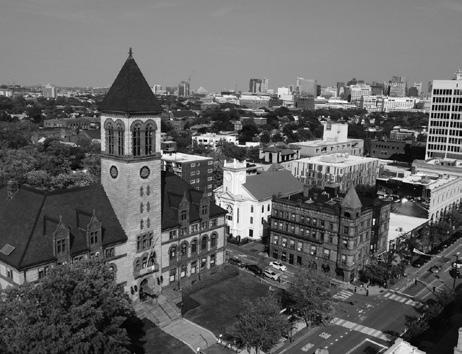
In the harassment prevention order affidavit, Wallace wrote that Wolf made multiple “false claims about noise” and the Fox’s placement of trash cans to the police over the course of a month and alleged that the tent in the backyard of the club is illegal. The order against Wolf was terminated on March 4, after Wallace failed to appear at the Cambridge District Court for a hearing on whether to continue the order. Wallace, the club’s alumni steward, did not respond to a request for comment on Sunday. According to a report following a Cambridge Police Department response to a loud party at the Fox’s residence on Feb. 18, Wallace reportedly told CPD Sergeant Paul J. Gallagher that Fox members “will party when they want and take any resident to court if they have a problem with them.”
“Fox Club staff stated they had ‘no interest in working with the neighborhood residents and they had every right to host parties
whenever they wanted,’” the police report noted. Despite the cease and desist order, the Fox has continued to host events at 6 Francis Ave. — including a St. Patrick’s Day party on Sunday morning. Some neighbors reported that the activity has been quieter since the order was filed. It is unclear how long the renovations will take or how long the Fox plans to remain in its current temporary location, which has a golden knocker in the shape of a fox head on its door and several taxidermied foxes hanging on the hallway walls. While Nolan said
“I
must notify Smith about her contract by March 31. Otherwise, both contracts will automatically renew.
During the meeting — which also featured an extended discussion of the CPS budget for fiscal year 2025 — parents tried to balance politeness with deep-seated disappointment and frustration while delivering public comment to the overflowing Cambridge Rindge and Latin School meeting room.
“In Cambridge over the past year, we’ve faced one district issue after another under Dr. Greer’s
leadership,” said Laura Clawson, a parent at Graham & Parks. “All with common themes of exclusionary top-down leadership, a lack of transparency and communication, and a hostility to hearing from stakeholders.”
At the meeting’s onset, the School Committee voted unanimously to postpone Greer’s midpoint evaluation until their April 2 meeting.
According to an email from School Committee member Elizabeth C. P. Hudson to a parent email list sent forty-minutes into the meeting, the two additional weeks will give the committee time to “not only identify areas where we can improve — but also to suggest a path forward there, at the same time.”
In an interview following the meeting, Cambridge Mayor E. Denise Simmons added that the postponement will give the committee time to take a “deeper dive” into Greer’s evaluation. “It seemed like a good idea to date, and then the date was on us, and we still had more to do,” Simmons said.
The announcement was met with quiet resignation from parents in attendance, who nevertheless rose to share their concerns about Greer’s leadership.
Most parent complaints were centered around Greer’s handling of what parents termed a “crisis” at Graham & Parks. The day before the meeting, dozens of anonymous Graham & Parks parents published an anonymous open letter calling for Greer and the School Committee to not renew Smith’s contract.
“Hiring principals is, I think, one of the most important things that superintendents do,” Graham & Parks parent Brook Hopkins said. She added that the hiring process of
Smith was “rushed” and that “by the time we got to the community forum part of the process, all the candidates but one had dropped out.”
Following complaints about Smith’s leadership at Graham & Parks, Greer hired a third-party law firm to investigate allegations of a toxic workplace environment.
But several parents said Greer has tried to “minimize” parent concerns at G&P.
Fiery A. Cushman ’99, a Harvard Psychology professor, said that after over a hundred parents petitioned for better communication from Smith, Greer dismissed the group as a “small, but vocal minority.”
“I was shocked by her use of ‘small,’ because it implied that our concerns are not important and our concerns can be dismissed easily,” added Graham & Parks parent Ying Dong.
Rachel T. Kelsey said that she had “never before felt such a sense of unrest” in her ten years as a Cambridge Public School parent.
“I strongly believe that we need new leadership immediately at Graham & Parks and in the district,” added Rebecca S. Lester, another parent at Graham & Parks.
Only one former parent — Tara Edelschick — praised Greer for her approach to leading the district focused on academic results.
“From her time as the head of special ed for the district, I knew that she was laser-focused on results, especially for our poorer students,” Edelschick said. “I have never felt more confident with a superintendent at the helm than I have with Dr. Greer.”
Once
On
Nearly one-third of
land in Cambridge is zoned
and two-family houses, which many advocates and city officials say has contributed to the city’s affordable housing crisis and is a relic of racist mid-century housing policies.
In December 2020, the Council unanimously resolved that single-family zoning is an“unnecessary artifact” of historically exclusionary policies. But though discussions continued into the following Council term, the body has yet to take concrete action to end single-family zoning.
On Monday, several councilors stressed the gravity of Cambridge’s housing shortage.
“We’re losing many folks in our community because of the cost of housing,” said Mayor E. Denise Simmons, a co-sponsor of the policy order.
“Housing is the number one issue in the city, and affordability is one of the most important issues that this Council has been trying to deal with for a while,”
said Councilor Joan F. Pickett. The policy order received support from housing advocacy group A Better Cambridge, whose co-chair Justin N. Saif ’99 told The Crimson on Monday that the change would “open up all of Cambridge to more folks that were historically excluded.”
But Pickett exercised her “charter right” to table the discussion until the subsequent meeting, citing a need for more discussion amid mounting concerns from community groups on the impacts of the proposal.
In a statement last week, the Cambridge Housing Justice Coalition said the change would only exacerbate existing housing inequalities.
“Unless we are very careful, the result will be expanded construction of expensive private market housing that won’t help and may well harm the no-, low-, and moderate-income people who are most affected by the housing crisis in Cambridge,” CHJC wrote. These concerns were echoed by Lee Farris, the president of Cambridge Residents Alliance, who said in an interview that the change would not incentivize multifamily housing in Cambridge’s most expensive and least dense neighborhoods.
“I live in the Port,” Farris said. “It’s already one of the densest, if not the densest neighborhoods in the city, and the housing prices are lower here than they are per square foot in the less dense areas.”
“So what is the city going to do to make sure that all of this new housing just doesn’t get squeezed further into the dens-
est neighborhoods?” she added. If the policy order were to pass, it would likely kick off a prolonged process of public deliberations between the Council and city staff with the hopes of developing a concrete set of amendments to the zoning code.
But though this process could open up the door for further opposition from community groups or residents, Vice Mayor Marc C. McGovern said he was confident that there was a broad coalition in support of the ultimate goal of making zoning more inclusive.
“I think a lot of different groups that often are at odds with each other around development and housing,” McGovern said. “One thing that people tend to agree on across the board was that we need to end exclusionary zoning.”
“This is getting the ball rolling and getting it started, which we’ve been talking about for a long time,” McGovern added.
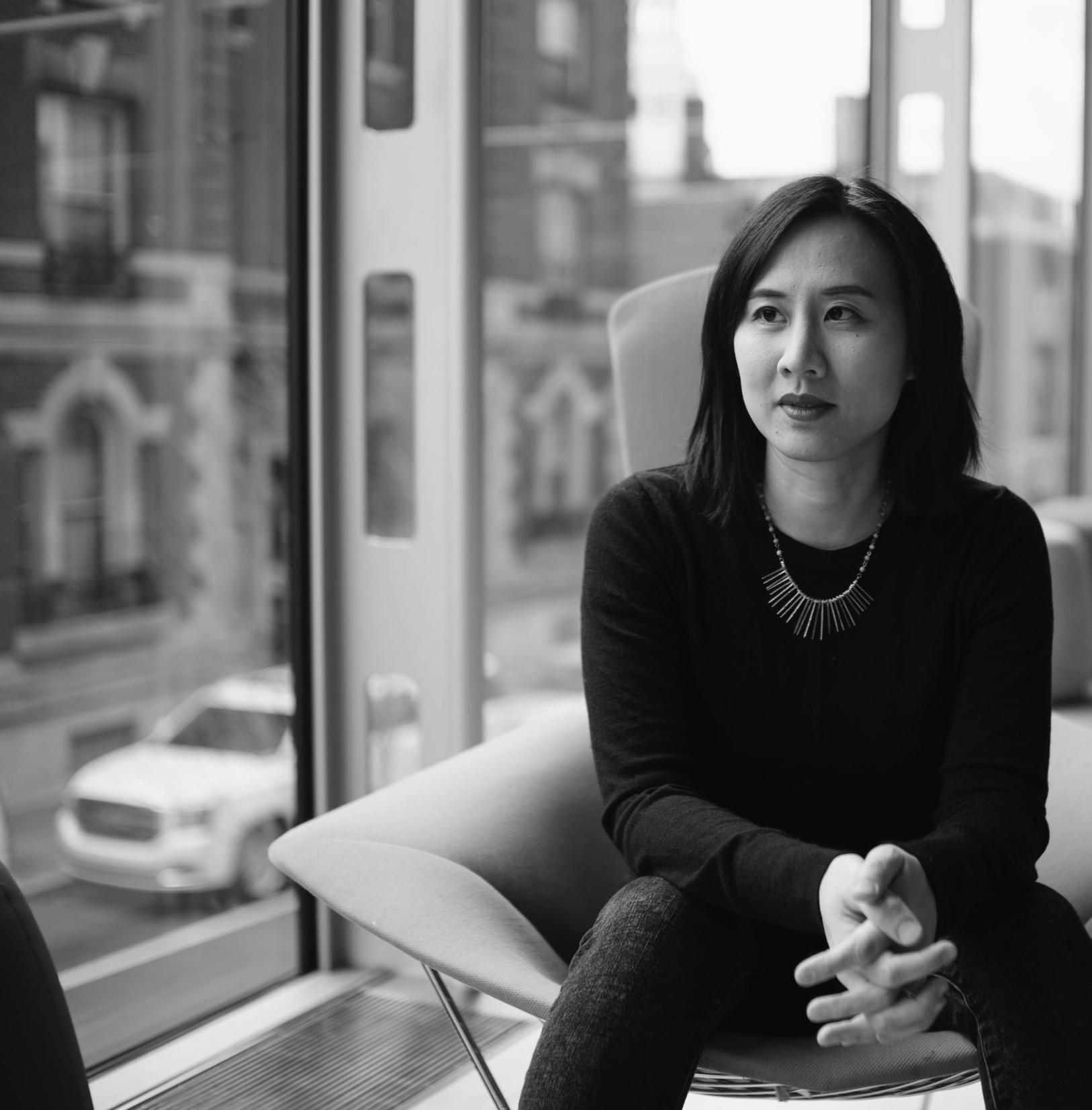
Harvard experience, it would be realizing that there is a lot more out there than I even realized,” Ng said. “There was always the moment where you felt like, ‘Oh God. I’m the mistake.’”
Ng recalled sitting in various house dining halls with her friends as they engaged in fierce debates about a variety of issues.
To author Celeste L. Ng ’02, articulating objective truth isn’t a worthy enough goal.
Instead, she writes her fiction novels wielding a metaphorical crowbar, prying apart stories that initially appear objective to reveal inner nuances to her readers and herself.
Formerly a Harvard English concentrator and Leverett House resident, Ng is now a bestselling author of multiple highly acclaimed books, including “Little Fires Everywhere.” Her work is characterized by shared themes of identity, race, truth, and personhood. In an interview with The Harvard Crimson, Ng discussed her approach to storytelling, why she writes, and the lessons she carries with her from her time at Harvard.
The key to Ng’s work is her crucial examination of the unknown and unknowable. Her recognition of what she does not understand about the world grew particularly salient in college. “If I had to sum up my whole
“We were really concerned with figuring out what we think,” Ng said with a grin. “And part of that is debating, and arguing, and trying to convince people that we’re right, and trying to figure out what an objective truth is.”
As she grew older, however, Ng added more nuance to her formulation of the world.
“One of the most important things we can do is to hold open space for individuality and nuance,” Ng said. “There’s more to life than being right. So recognizing our humanness is a priority for me.”
Ng now uses her novels to deliver that same nuanced understanding to her readers. She expressed appreciation for those who finish her novels with the realization that there was much more to the story that they originally “didn’t know was happening.” “
“A lot of the stories that I find myself drawn to writing are really, at heart, about recognizing that there are multiple ways to view a situation,” Ng said.
In all three of her novels, Ng intentionally begins with an illusion of simplicity, slowly revealing complexity as the plots progress.
“I think we want things to be simple. As humans, we would like there to be very clear, definitive answers and hard and fast rules,” Ng said. “And life is actually really complicated. Humans are really complicated and messy. And I think that’s actually a good thing.”
Ng believes that holding space for complexity will be a core element of all her future works as well — “unless I radically change my personality,” she said, laughing. This nuance-forward storytelling comes through in a particularly authentic manner because of Ng’s instinctive approach to her writing.
“When I’m writing, it’s because I’m trying to figure something out,” Ng said. “A story comes to me, and it sticks with me because there’s something in there that I have questions about, and that I’m trying to articulate to myself.”
In a world with countless questions to answer and issues to resolve, Ng has a steadfast approach to selecting which stories she wants to tell.
“If it feels like the story that keeps tapping you on the shoul -
der whenever you try and walk away from it, if it’s the story that keeps coming back to you, then I think you owe it to yourself to try and write it,” Ng said.
Most recently, the issue that has kept tapping her on the shoulder has been parenting in a tumultuous world.
“How do you parent in a world where it feels like everything is really falling apart? Which, generously speaking, is kind of how I feel about the world right now,” Ng said. Her latest book, “Our Missing Hearts,” is a moving and timely story about a mother and son navigating a complex dystopian society. As a mother to her own son, Ng realized that this writing process ultimately arose from a quest to articulate to herself: “Why bother?”
To Ng, the most successful books are “almost like a crowbar.” She laughed at her own analogy.
“They’re just prying a lid off of something,” she said. “There’s not necessarily an answer inside that can, to continue that analogy, but they’re just opening it up and showing that there’s other stuff in there that I hadn’t put in there yet.”
Part of the success of her complex approach to storytelling comes from the deep empathy Ng holds for her characters, particularly those with a diverse range of experiences that she may not share.
“Maybe this person has a physical handicap, and I don’t have that. But there is something about the way that they feel judged by the world, they feel like everyone is looking at
them, they feel like they have something to prove,” Ng said. “That I know about. I grew up as a Chinese American in a place where there weren’t very many. So I know what it’s like to feel like everyone’s immediately looking at me like, ‘You’re different. I can see you.’”
For each of her characters, Ng seeks out a “core feeling” — like the feeling of being judged — that she shares with them on a quest to deeply understand their feelings. The result is that each character she writes, even those who make profoundly unjustifiable decisions, are still three-dimensional beings worthy of empathy from a thoughtful reader. Although she writes to figure things out, Ng acknowledges that no book will ever give clear, perfect answers to the readers or the author. Instead, she is secure in the knowledge that her stories allow people to open their minds to questions and nuances that they may never have considered before. As a result, Ng conveys more than just objective truth — she writes the authentic human experience, as subjective and irreconcilable as that may be.
stella.gilbert@thecrimson.com
GRRL
older couples all gathered to see the program. The collection included 16 local, national, and international short films and music videos, all female- and LGBTQdirected, with a focus on low-budget and DIY filmmaking. The films ranged from comedies and dramas to experimental projects and tributes, and the stark differences between the pieces were reflected in their various lengths, genres, and artistic approaches to conveying their stories.
Though each of the 16 contributions was significant to the collection, two films stood out from the rest: “Fish Bowl,” di-
While definitely steeped in the comedic elements, “Fish Bowl” offers a poignant exploration of societal expectations and personal autonomy. Zoe’s circumstance provokes her introspection, prompting challenging conversations about what it means to be a woman against the backdrop of both adulthood and motherhood. The production does so in an attentive way that not only considers but also prioritizes the female perspective amidst complex social dynamics.
Though “When the Beat Drops” isn’t as humorous, it’s equally impressive with its raw, emotional depth and compelling story. The film is a drama about the nonlinear process of managing grief in the context of youths’ vulnerability to ex-
rected by Rachel Sweeney, and “When the Beat Drops,” directed by Amy Janna. “Fish Bowl” is a dark comedy about a woman’s self-discovery of her body’s autonomy. The film depicts soon-to-be mother Zoe on the day of her rehearsal dinner. She shares tender moments in bed with her fiancé Jude, welcomes her loved ones to the event, and unexpectedly has a miscarriage in the bathroom. Despite dealing with such a heavy topic, “Fish Bowl” is shockingly hilarious. The cast’s comedic delivery is stellar, and the jokes, rather than being cheap and insensitive, are thoughtful and witty. Oftentimes, the film leans into a depressing, funeral-like atmosphere, evident in the low exposure and high contrast pairing of the film’s lighting, coupled with a longstanding uneasy feeling that something ominous looms. These combined elements — the humor and gloom — foster an unconventional means to add nuance to a serious matter.
ternal influences that threaten to derail that emotional journey. Maya and Sem, two teenage soccer players, share a beautiful and intimate friendship, enveloped by their love for the sport and their complementary differences from one another. However, one night at a party, tragedy occurs as Sem is unexpectedly hit by a car.
Subsequently, Maya must learn to navigate that heartbreak while grappling with feelings of guilt and loss. The film uses soccer as a medium to progress the narrative, allowing for genuine and unguarded moments of anxiety, frustration, and tense anticipation. Similarly, Maya’s frame of mind is also told through her selfexpression, as she wears vibrant outfits, unique jewelry, and captivating eye makeup to communicate her emotions as she processes Sem’s passing. This film intertwines two distinct outlets
to vividly indicate her internal struggles, and it does so with remarkable authenticity that stay true to the character. While similar productions can feel exploitative of the characters that the audience grows to love so quickly, this film delicately portrays grief and realistically depicts the emotional complexities involved. “When the Beat Drops” stands as a testament to the human capacity for resilience and is a love letter to female friendship with its ability to transcend adversity. Although these two films were clear standouts, there are many honorable mentions. Natalie Peracchio’s “Wiener” doesn’t take itself too seriously, as it dissects a fatherdaughter relationship on a college tour through the vehicle of President Wiener, a semidiegetic character with a penchant for absurdity. Allison Radomski’s mixed media “I HEART HORSE” creatively represents women’s sexuality and solitude via a parasocial relationship with a neighboring horse, eliciting several consistent laughs from the audience. In a matter of two minutes, Amanda Foreman’s “An Artist’s Life” considers the loneliness of a ventriloquist’s life, before revealing the true narrator: his puppet. The program’s eclectic mix left no stone unturned in its exploration of the human experience, offering a blend of humor, poignancy, and creative ingenuity that captivates all. The full screening ended up being a cohesive collection with a diverse array of films that represent audiences on a deeply personal level. Whether that’s seeing life through the lens of female and LGBTQ directors, or feeling empathized with through authentic storytelling, GRRL HAUS CINEMA is surely a collection worth remembering.
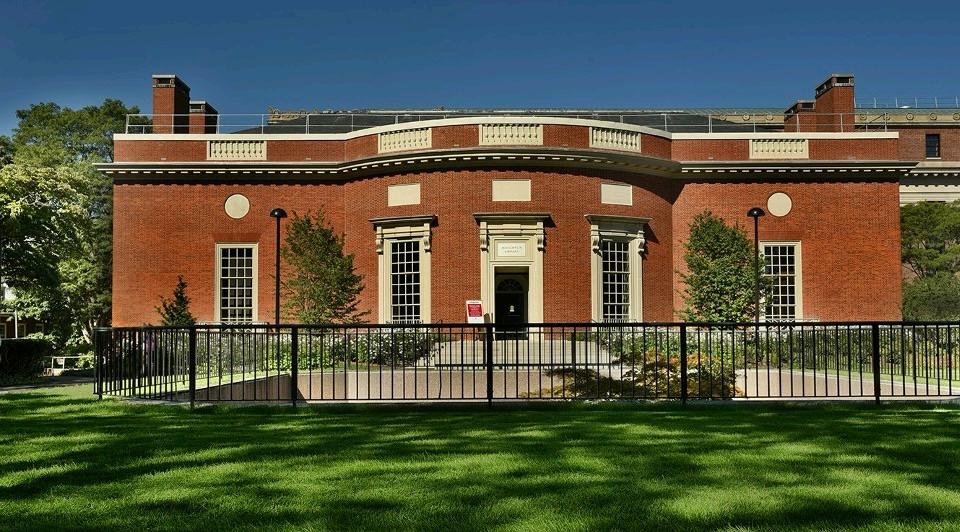
Dear Dr Garber,
We represent an af0inity group of more than 0ifty “ordinary people,” pleading with you to repatriate to France one of the most loathsome objects in Harvard’s ownership: a 19th-century book bound in human skin, held at the Houghton Library. The nameless young woman whose skin was harvested for this purpose had been committed to a mental asylum in Châlons-en-Champagne, France. Before her death, the doctor who took her skin dosed her and other patients at the asylum experimentally with solutions of hydrogen cyanide
The Houghton Library received this book by gift seventy years ago. In the following decades, the Library has handled it brutishly on a regular basis, as an attention-grabbing, sensationalized display item. A Houghton blog post characterized it as “a popular object of curiosity, particularly to undergraduates.” It has been used for the hazing of student staff: they would be asked to retrieve the book by its call number, and when they returned with it would be told that they were holding human skin. A curator at the Houghton writes excitedly that when she 0irst learned of this book, “At my 0irst opportunity, I stole away on a break to get a look at the volume. Holding the book didn’t give me goosebumps ...”.
In 2014 the Houghton Blog celebrated its ownership of the book under the sniggering headline “Caveat Lecter,” opening with: “Good news for cannibals ” The story was picked up by dozens of newspapers and other media, and broadcast to millions, images of the skin thoughtfully provided by Harvard Library. One of us wrote to the Houghton and urged that the human skin be removed and given decent burial. The Harvard Librarian denied the request. In the years since, this binding has been highlighted in the Crimson Key guide, Inside Harvard Thousands of visitors on guided tours have been told about it as they are led past the Houghton building
Three years ago, President Lawrence Bacow formed a Committee on Human Remains in University Collections, chaired by Professor Evelynn Hammonds. His charge was: “One measure of any community is how it treats its least powerful members. We cannot remedy the indignities visited upon [those] whose remains are housed in our museum collections but we can help to ensure that they are treated in death with the care that we would wish for ourselves.” One of us wrote to Bacow and he promised that the committee would take account of the Houghton book.
When the Hammonds Report was published in September 2022 it stated a 0irm principle. In Professor Hammonds’s words, “[A] museum is not and should never be a place for the remains of humans. It is not a mausoleum. It is not a sacred place.” President Bacow praised the Report lavishly: he had “seen our community at its best motivated by Veritas to do right.” Yet the Report overlooked the ethical problem raised by the Houghton volume and by the way the Library had handled it listing it without comment.
In December 2022 we brought this failure to the notice of Dean Claudine Gay and of the Chair of the Human Remains Returns Committee. Dean Gay replied brie0ly that the Library would “review its approach to stewardship” of the volume, expressing no further interest The Chair of the Returns Committee was silent. Nine months later Gay, now President, told us neutrally that the Library was still “in the process of conducting their review.” The Human Remains Returns Committee will not tell us whether that review has since been completed, let alone what it might say. Five months ago, we sent to the Returns Committee our own detailed plan for repatriation of
the human remains to France. The Committee has not discussed it with us
The Hammonds Report is unambiguous in af0irming the role of af0inity groups such as ours: community consultation is “fundamental”; the University “commit[s]” to consultation and to being “transparent in its actions and decisions.” These fair-weather words are the opposite of what we have met with. The Remains Committee has made it clear that it has no intention of speaking with us.
Months of obstruction and silence demonstrate that no one at Harvard, whether on the multiple human remains committees of the past three years, in the provost’s of0ice to which those committees report, or in the president’s of0ice, has been touched by the humanity of the violated woman at the heart of this case.
Readers of the Crimson might suppose that the Human Remains Returns Committee is composed of professors and museum personnel who have re0lected deeply on what has been called their “Solemn Stewardship ” They tell you so themselves “Institutions and communities have to be in dialogue with each other,” says one. The Committee is devoted to “proactive outreach,” says another. Its obligations must be carried out with “deep empathy and unwavering compassion,” declares a third. You have spoken of how “humble[d]” you have been in coming to understand Harvard’s duty in the ethical treatment of human remains.
The disparity between the Committee’s eager professions of caring and the disrespect we have encountered has an obvious explanation Those uplifting statements are reserved for Native American human remains These have a federal law, NAGPRA , standing behind them. When on the public stage, it is very much in Harvard’s interest to perform compassion about Native American remains
The Houghton binding reveals Harvard off the stage, where no legal compulsion is in play We have come to know a university that, behind the scenes, is cold, arrogant, and deaf to voices from outside its walls. “One measure of [Harvard] is how it treats its least powerful members.” Harvard asked to be judged by this standard. In the case of the Houghton Library human-skin binding over more than three years and under three presidents, Bacow, Gay, and now you, Harvard has turned its back on its pledge
The civil code of France, homeland of the woman victim, declares that humans are to be treated with respect, dignity, and decency, even after death Dr. Garber, it is time for you to act. Your university has so far shown itself incapable of decency with regard to the Houghton volume. Until the Harvard community 0inds the courage to stand up and speak out on this matter, the Hammonds Report is a document not of Veritas but of hypocrisy.
Rabbi Ruth M. Gais
John Lancaster
Paul Needham (Ph.D. Harvard, 1971) [af0initygroupchalons@gmail.com]
An open letter to Interim President Alan M. Garber, 22 March 2024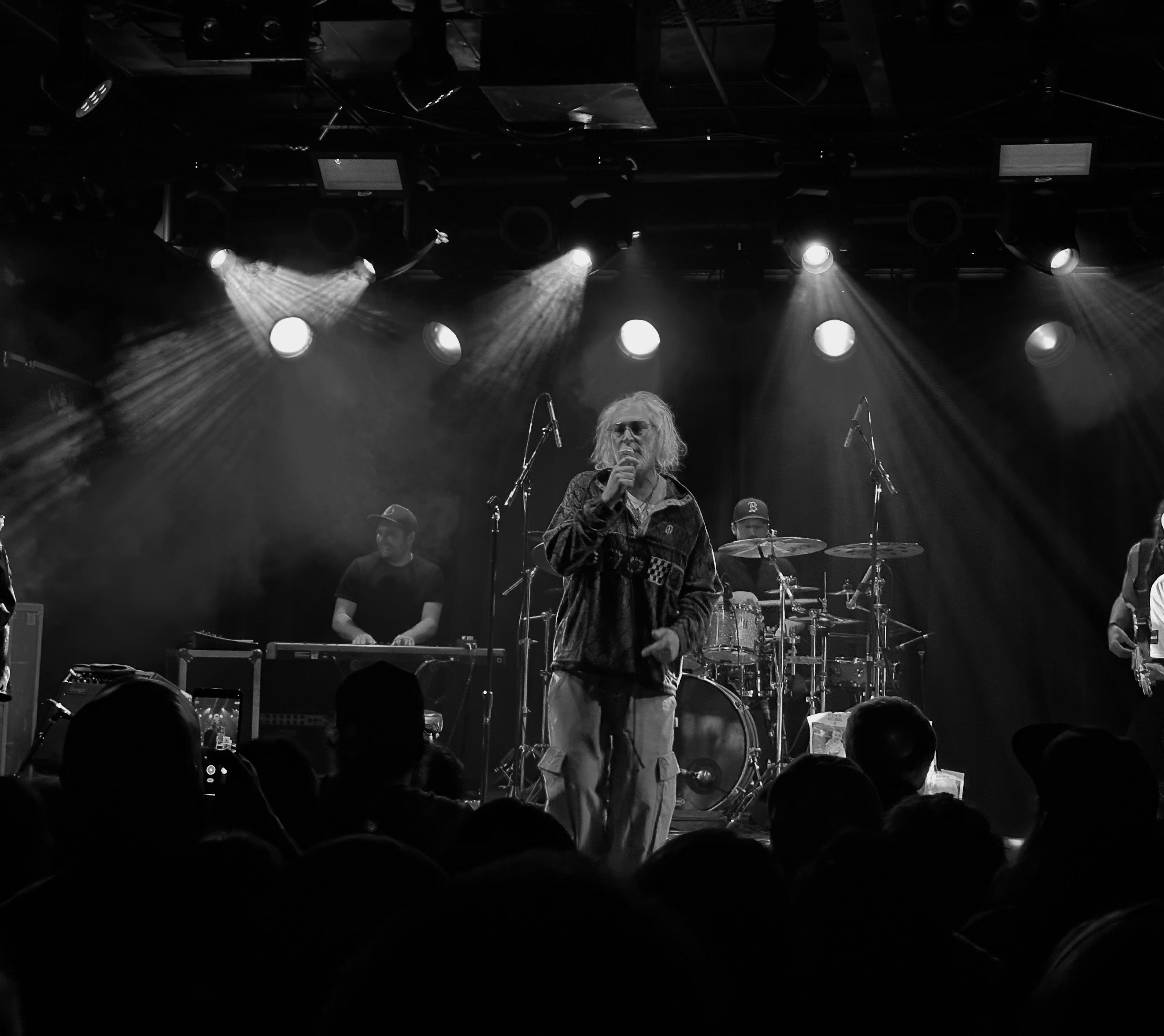
On March 16, the Paradise Rock Club in Boston was abuzz with the dazzling lights and soulful groove of alternative reggae rock as musician Matisyahu took the stage for his “Hold The Fire” tour, supporting his new EP by the same name. This is not the first time the Paradise Rock Club has been graced by his groovy presence. Rather, the club is something of a heritage site for Matisyahu fans.
“I think this is one of the first clubs we ever played at in, like, 2003,” the singer said. It’s no surprise that Matisyahu is a repeat performer at the Paradise Rock Club, either, as the venue appears to be the perfect place to share his sound. The performers — including Matisyahu himself and the band that accompanies him — and audience seem to fill the space. More importantly, the sound mixing and acoustics of the dimly lit hall accentuat-
ed his alternative reggae style with strong bass and clear tone. This combination allowed both the driving beat and his sharp vocals — and incredible beatboxing — to shine as he performed a mix of classic favorites like “Surrender,” “Time of Your Song,” and “Live Like a Warrior” alongside new music from his EP like “End of the World.”
Matisyahu and his band flawlessly pulled off their new music for the first time in concert, treating songs new and old with the same comfort and familiarity. While there were a few bits of feedback and other technical difficulties, nothing lasted more than a brief moment nor threatened the performance’s well-cultivated atmosphere.
This atmosphere was fueled by dynamic lighting, coherent sound, and high energy from the performers. Notably, the colorful and emotive lighting onstage shifted with the timbre and mood of the music. Introspective moments were bathed in cool light. When the tempo accelerated in the song “Jerusalem,” the lights flared up to
on for recommendations for the best TV shows to screen in anticipation of the new season of “Bridgerton!”
1. “Queen Charlotte: A Bridgerton Story”
“Queen Charlotte” is a sixepisode prequel to the main “Bridgerton” show. It explores the married life of the eponymous Queen Charlotte (India Amarteifio) and King George (Corey Mylchreest) of England. In the original series, the former is a towering and eccentric presence in an already memorable cast, while the latter is a shadowy, generally mad figure whose deep affection for his wife is subtly hinted at. Together, these two characters lead a compelling — really, it has a 95% Tomatometer rating — love story that switches between young actors in the main plot to the familiar, Regency-era royalty from the original show. This is the perfect
boost the excitement of the moment, and a similar effect brought the eventual encore of hit “One Day” to a rapturous conclusion.
Of course, none of this pomp would matter if the music was not strong on its own. From opening alternative band Cydeways to the headliner himself, the nonstop sound was thoroughly integrated and well-chosen. The members of Cydeways joined Matisyahu for the remainder of the concert as part of his band — a physical representation of the sound’s cohesive flow. Not all of the concert was well-paced, however. On one occasion, Matisyahu left the stage mid-song, not to return for several minutes — much to the confusion of audience members. There was a pregnant pause between the false end of the concert and the encore. Though his improvisational beats and lyrics — and a spirited partial cover of Bob Marley and the Wailers’ “No Woman, No Cry” — added flavor and variety to the performance, at times they overstayed their
show for “Bridgerton” comfort characters, a well-written period romance, and a stunning, vibrant aesthetic that defines this smash hit.
2. “Pride and Prejudice” (1995)
This 1995 BBC miniseries is one of nine onscreen adaptations of Jane Austen’s iconic novel “Pride and Prejudice.” The adaptation recounts the love story of Elizabeth Bennet, the strong-willed daughter of an English gentleman, and Mr. Darcy, a proud country aristocrat. Although the 2005 film adaptation starring Keira Knightley may be more well-known, the 1995 series’s five-hour runtime allows for a precise recreation of every longing glance, jab, and nuance from the classic text. Viewers chasing the old “Bridgerton” experience should watch it for that very reason, as the series closely resembles the romantic subtle -
welcome. This gave the overly lengthy encore a sense of being lost, as it wandered from theme to theme before returning to the “One Day” finale. Still, Matisyahu and his band retained a high energy throughout most of the performance. From “Sunshine” to “Aish Tamid” — and even a new song set to release on March 29 — they shifted seamlessly from song to song with few breaks in between. Matisyahu stayed in constant motion throughout, grooving to the beat. This energy was infectious — not only to the members of the band ac -
This atmosphere was fueled by dynamic lighting, coherent sound, and high energy from the performers. Notably, the colorful and emotive lighting onstage shifted with the timbre and mood of the music.
companying him, but to the audience as well. Despite a few minor hiccups, Matisyahu remains a talented and entertaining performer after over 20 years of making music. Returning to the stage with the energy to back his experimental and captivating sound, his performance is sure to delight and excite any and all fans of alternative and reggae music. Hopefully fans will not have to wait another 20 years for him to return to the Paradise Rock Club.
aiden.bowers@thecrimson.com
ties and enemies-to-lovers storyline of the show’s second season. For the costume lovers out there, it also offers a feast of Regency fashion that feels even more historically accurate than Netflix’s flagship show.
3. “Anne with an E”
This show is another literary adaptation, this time of L.M. Montgomery’s popular “Anne of Green Gables” book series. The three-season show follows an orphan named Anne (Amybeth McNulty) as she grows up and navigates the trials of family, friendship, and love on Prince Edward Island. The PG-rated show is far more innocent than “Bridgerton,” but it treats the topic of family with as much compassion and reverence. Gilbert Blythe (Lucas Jade Zumann) and Anne’s love story is also something fans of “Bridgerton” would appreciate. In going from rivals to friends to lovers,the pair embodies the dy -
namics of seasons two and three of “Bridgerton.”
4. “The Crown”
Like “Bridgerton,” “The Crown” is high society media at its best. The six-season show lays bare the inner lives of the British royal family at pivotal moments of the 20th century. What differentiates it from other historical dramas is its gripping, dramatic tone and the omnipresent knowledge that the show is based on real people. Its intensive study of personalities as varied as Queen Elizabeth II and Princess Diana has garnered no less than 21 Primetime Emmys. Besides the compelling writing, fans of “Bridgerton” will appreciate the social intricacies, extravagant lifestyles, and high society politics that added similarly satisfying stakes to the Netflix show. Its distinctly British atmosphere doesn’t hurt matters either.
5. “Sex and the City”
The last recommendation on this list may seem surprising, but it is more fitting than expected. “Sex and the City” is a six-season, Emmy-winning TV show that follows the friends and lovers of four women in late ’90s New York City. The dialogue is witty, the characters are complex, and the romance is steamy. For those seeking to recreate the experience of “Bridgerton,” “Sex and the City” is the perfect match. Though it is not a period piece, the outfits are equally beautiful and narratively significant to a watchful eye. The show also has the benefit of extensive content. After finishing the original “Sex and the City,” turn on the reboot, “And Just Like That…,” for similar, albeit less critically acclaimed, drama. As Julie Andrews, the iconic voice of Lady Whistledown in “Bridgerton,” might say, “Enjoy these while you can, dear reader. See you in the spring!”
giselle.acosta@thecrimson.com
had to say was unpopular.” Do you think that’s like a fair characterization?
SEH: It is. It’s either a defect or a benefit at different times. People don’t like that. But people are sick, right? And this is taxpayer money. That’s what I kept saying. We owe it to people with these illnesses, and we owe it to the taxpayers to do our very best.
FM: Then you took on another administrative position as Harvard Provost. You were in charge of Harvard’s academics, and you worked on some collaborative scientific initiatives. Can you tell me a little bit about what those were?
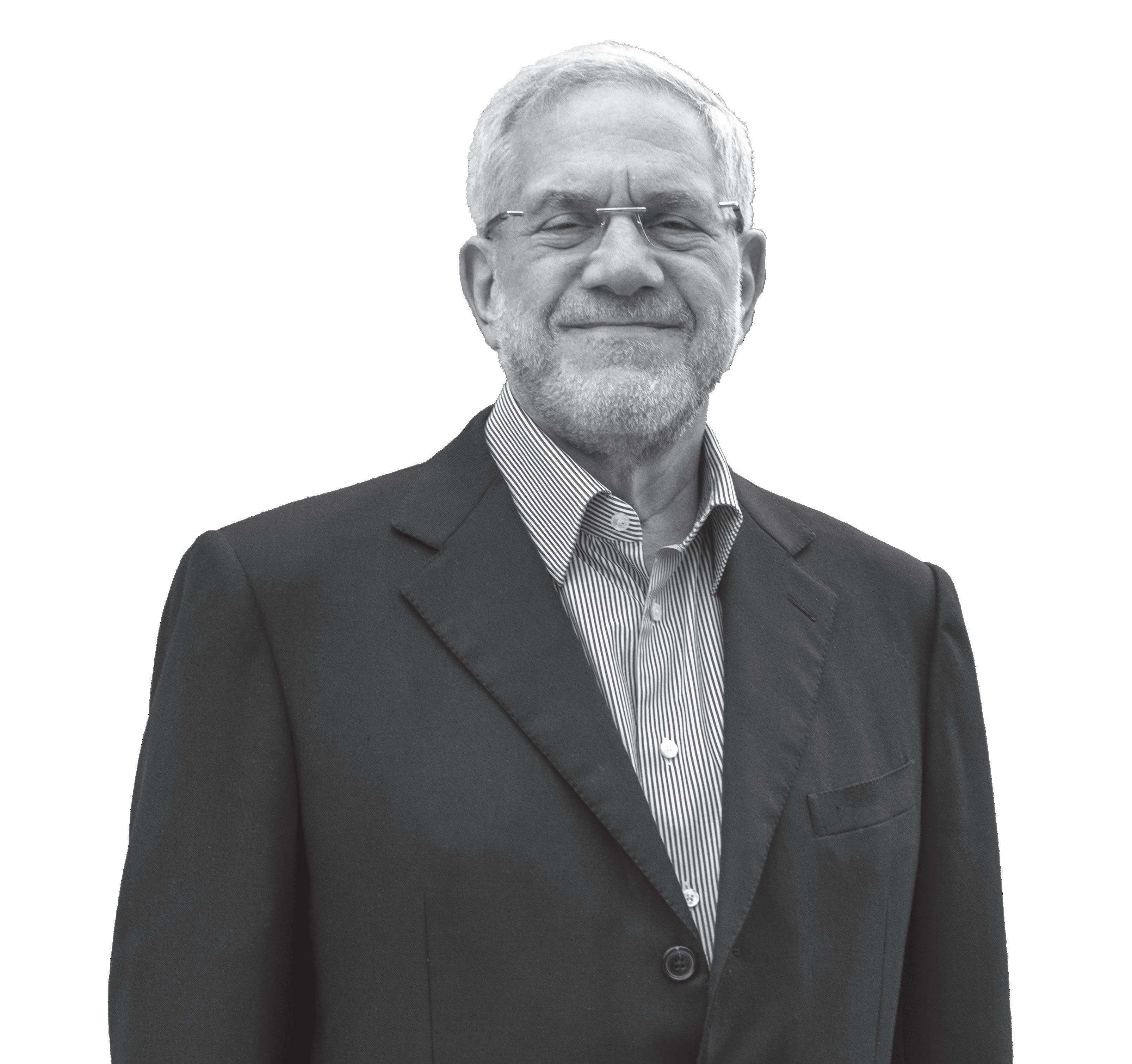
Was the history and philosophy of science your first academic interest?
SEH: I had a Ph.D. thesis planned out that I likely would have stayed at Cambridge anddone. I wasn’t thinking at the time about mental illness. I was really thinking about how the brain gives rise to the mind, questions like that. But it was hard in the 1970s to find people really interested in that. And that’s when I decided — with utter terror, by the way, because I didn’t really know what I was doing — that I wanted to do neuroscience.
FM: How do you feel like that background in history and philosophy affected your practice as a scientist?
SEH: In ways that I wouldn’t have predicted. It turns out that the ethics of neuroscience was remarkably unexamined. When I was NIMH
director, I already was blindsided by profound ethical issues. The issue of treating children with ADHD with stimulants — it’s remained contentious, but it was very, very hot at the time. And people had a rather unexamined and rigid view that if you give medicines to a young child, you’re changing their brain, and you’re changing who they are. But people were not thinking about what happens to those kids if they can’t do well in school, despite their abilities, and they’re always being yelled at for running around, and they’re rejected by their peers. How do you decide what’s good, what the right thing to do is?
When we intervene in people’s brains, not only are the usual ethics of, “do they understand what we’re doing, do they consent, are we really concerned for their safety,” but also issues like, “are we thinking about personal identity, narrative identity, thinking about how a person’s personality might change and what that means for them, but also for their families and friends?” I think the world is not thinking enough about these things. That philosophy background has stood me in good stead and has contributed to a lot of what I actually do.
FM: What do you think is the biggest
ethical issue that neuroscientists should be paying attention to right now?
SEH: There are a few. Although it’s really early days, the truth is, some form of mind reading, especially with the help of AI, is not implausible. I think the ethics of brain privacy are gonna be really important. But for right now, 200,000 people in the world have deep brain stimulation to treat Parkinson’s disease. And a certain number of those people really have important personality changes. People start gambling. People start engaging in risky behaviors very late in life. It really is changing the way people are, their relationship to their families and so forth. And as these procedures become more routine, and as they get developed to treat depression and OCD —which is happening —I don’t think that the medical establishment or people in general really have grappled with the fact that your sense of identity is not necessarily permanent and stable. It’s malleable and treatments that you might undergo for very good reasons might change that.
FM: Do you think these ethical issues are under examined?
SEH: Yeah. It’s very real, but yet to most people, it seems very exotic. It seems like science fiction.
FM: You were the director of the National Institute of Mental Health for many years. What are you proudest of from your work during your time there?
SEH: I was hired, and I had the temperament, to modernize it. It really was a mess. A lot of the work was wishful. The social determinants of mental health really matter. But having recognized — as I think we have —that living in grinding poverty can be causal for depression and anxiety and can exacerbate everything else, doctors are not very good at curing global poverty. We can advocate. I testified in Congress. But, just to give you
SEH: One of the things about Harvard is it’s relatively decentralized. But the problem was that the structure of modern knowledge is not necessarily something that would fit in a school or a department. Think about environmental policy, where you need lots of chemistry, engineering, economics, policy analysis, and actually many other fields because of the effects of climate change on agriWe developed this program of interfaculty initiatives. The biggest one I negotiated the Harvard side of was the Broad Institute. That really was Eric Lander’s vision of bringing together Harvard and MIT and the Harvard hospitals to make good on the promise of the genome to make a difference for human health.
FM: On this kind of a topic of collaborative initiatives, I think right now, there’s maybe this feeling that STEM disciplines are kind of on the rise, while the humanities are more on the decline. What kind of work did you do to kind of balance the interests of these different academic communities
I don’t think I succeeded in what I really wanted to do. What I did do is support the humanities.
I helped Homi J. Bhabha, the former director of the Mahindra Humanities Center, raise money, including trips to India, and tried to make sure that the humanities were involved in these important
But what I was really hoping was to develop more substantial kinds of collaborations, because many issues can’t be resolved within STEM disciplines alone. Let’s imagine that through enhancement, through better drugs and amphetamines and maybe a little brain computer interface and so forth, we pump up human capacities.The question then becomes, what was the purpose of life to begin with? Is it to be maximally productive until we drop? Are there other things we should care about? You find the answers in history and literature and drama and art. You don’t find them
How do we confer moral status not just on people but on animals and other things?
People are going to now ask this about AI — will some AIs deserve moral status? Again, this cannot be compartmentalized only within the STEM I didn’t succeed. Many humanists were afraid I wanted to instrumentalize them to be serving the needs of scientists to deal with these difficult problems. I think these are some of the most interesting and pressing problems that we’re facing. And we actually need humanists to help think in compelling and profound ways about these problems.
FM: How do you balance it all?
SEH: I’m sure I dropped so many balls. People must be angry at me.
FM io.gilman@thecrimson.com
Fifteen Minutes is the magazine of The Harvard Crimson. To read the full interview and other longform pieces, visit THECRIMSON.COM/ MAGAZINE

GOs in junior Andrew DeGennaro, sophomore Matt Barraco, and touted freshman phenom Owen Umansky. Rodriguez was successful on the clamps, hearing the whistle well which allowed him to win the ball forward and create fast break opportunities for the Yale attack.
BY KATHARINE A. FORST CRIMSON STAFF WRITER“The
It’s
And, they’re a great
it’s a competi-
game,” said Yale’s Head Coach Andy Shay. “Every team in our
is really good, it’s just an Ivy League game the way I look at it.”
“Whenever it’s the Harvard-Yale game it’s a big deal,” added Frisbie Family Head Coach Gerry Byrne. “It’s a rivalry that’s a hundred years plus old, so that obviously carries a little weight, but we don’t look at it relative to being 6-0, or having been 6-0, it’s just the next game that’s up.”
The game – which was an offensive battle for both squads – was divided into two distinct halves, with the Bulldogs coming out strong early and running away to a decisive 8-3 lead in the first quarter, maintaining that momentum through the half to end the first 30 minutes of play up 13-6. The second half, in what has been the Crimson’s signature so far this season, fell entirely to Harvard, with the Crimson defense only allowing Yale to post a single goal in the third. Despite the valiant effort to regroup, Byrne was unable to dig his squad out of the deficit and clinch another thrilling comeback victory.
Yale’s impressive performance at the faceoff X, led by junior FOGO Machado Rodriguez, enabled the Bulldogs to maintain its lead throughout the first half and remain competitive with the Crimson during its slump in the second. The Chaminade product went 68 percent on the afternoon, besting all three of Harvard’s FO -
“Mac was great, and I think that that allowed us to build that lead in the first half,” Shay added. “It is what it is. You’ve got a great faceoff guy and you want to lean into him, and he’s been great for us.”
Junior LSM Jack Stuzin, who was sidelined early in the game due to an injury, struck paydirt for the Bulldogs a mere ten seconds into play, capitalizing on the quick possession at the fifty. Instead of sprinting off the field to allow for an offensive line change, Stuzin held his space at the top of the arc, where – in the fray – he was left alone for an easy pass and rip past senior goalie Christian Barnard. The Yale squad and stands erupted into raucous cheers as the junior pumped his fist in celebration.
“Their guy was right on the whistle and they were able to not only win faceoffs, but score off of multiple,” Byrne said. “We had to change our kind of mindset that we had to maybe stop going for the win and go for just keeping him exiting forward. So, once we started kind of jamming him up a little bit it became more of a 50-50 battle.”
DeGennaro secured the second faceoff, and the Crimson was able to level the score 1-1 just a minute later. Ball movement looked solid for the attack, and Harvard looked patient as it worked the ball around the perimeter. Junior attackman Sam King – the fifth highest point scorer in the nation – made light work of his defender, sophomore Patrick Pisano, who overplayed him on the outside as he made his signature question mark dodge around the right side of the crease. In his effort to mitigate that lane, Pisano allowed King to roll underneath him and get the inside step on the crease.
The Baltimore native sent the ball squarely past junior goalie Jared Paquette to make it an even game.
Yale scored the next two goals before sophomore attackman Teddy Malone – who posted a career-best performance – easily sailed past his short-stick matchup with senior SSDM Jack Monfort. Malone utilized his shiftiness as he split past Monfort down the right alley, hitching and pausing for a second – which threw Monfort off as he thought Malone was
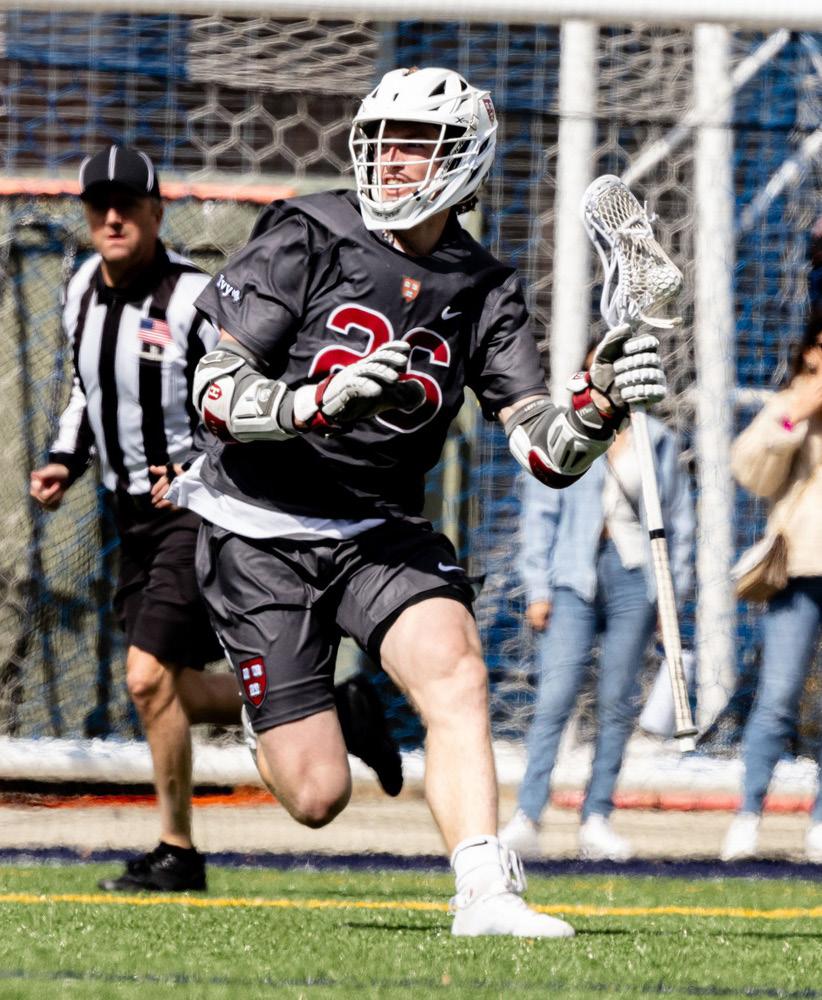
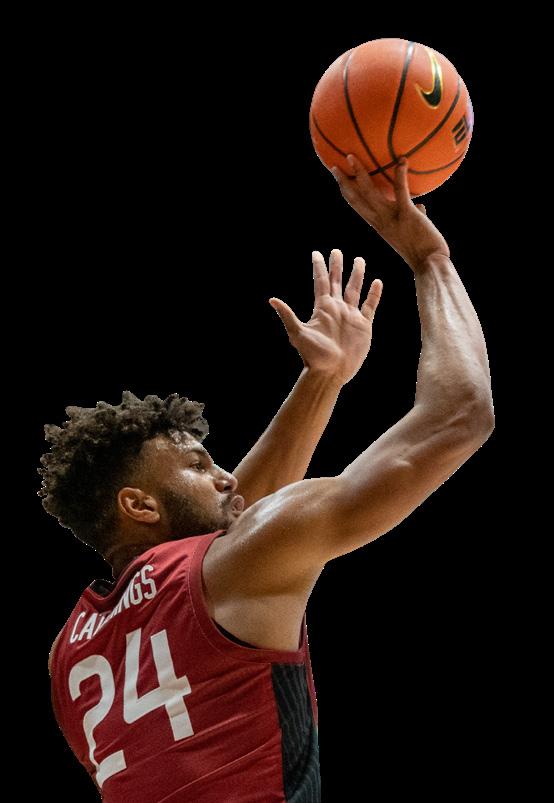
looking to feed into the middle –before taking off towards the goal, leaving Monfort in his wake as he bounced it past Paquette.
Junior middie Carson Kuhl tallied the next two goals for the Bulldogs, which flew by Barnard a mere six seconds apart, before Malone was once again able to stall the Yale stretch on a feed from senior attackman Graham Blake.
Rodriguez secured the initial clamp at the faceoff, but a clean back-check from DeGennaro sent the ball flying out of bounds for an easy Crimson clear. Yale was late to slide downfield on the fastbreak which allowed Blake to stretch his defender wide on the wing and hit Malone. The sophomore was sitting pretty by himself cross-fan as he quickly duked out Paquette with a low fake, high finish, in the top left corner.
“I think on defense and as a team we showed our ability to crawl back into any game no matter what the score is. We don’t get rattled,” Barnard said. “That said, we need to find a way to start faster next Saturday. Yale was moving at a lightning-quick speed to start the game and we couldn’t quite keep up at the beginning. However, as the game wore on, we started to control the pace of play.”
In what would have changed the momentum of the entire first half, a strategic challenge by Shay saw the referees wave off a goal from Malone on the crease for an apparent goalmouth violation. Instead of leading by just one goal, at 5-4, Yale gained possession of the ball on its offensive end, where it pushed forward full throttle to end the first quarter with an 8-3 lead.
“We played really well, efficiently, offensively in the first half,” Shay said. “Second half I think our shots weren’t the best, and they started playing better. And a couple penalties, and the next thing you know it’s a much tighter game. If the game lasted three more minutes, who knows what would have happened.”
The Crimson saw red as it stormed the field to start the second quarter, with King tallying two points – an unassisted goal two minutes into play and an assist to junior middie Miles Botkiss a minute and a half later – to narrow the Bulldogs’ lead to two. Despite the charge, Yale asserted its dominance and retaliated with five-straight goals from Kuhl, sophomore attackman David Anderson, and junior middie Johnny Keib. King stopped the bleeding with 19 seconds left in the half, scoring on a last ditch effort off a feed from Botkiss. Botkiss found space with a lefty dodge around his defender, racing across the fan, where he spotted King posted in the middle. Botkiss zipped the pass inside, finding King, who was able to get his hands free for a lefty riser on the doorstep past Paquette. The referees threw a flag on the play, which granted Harvard possession to start the second quarter and a man-up advantage.
“You’ve practiced end of game scenarios, and you don’t necessarily practice being down four or five goals in the first quarter, but you develop a mindset,” Byrne said. “And the fact that we’ve had success in the Vermont game and Bucknell, and some of these other games where we went down, you develop a kind of callousness and you develop a kind of poise that allows you to feel like we’re not out of this yet.”
While Shay’s review impacted the momentum of the first half, a slew of penalties against Yale throughout the third quarter, which afforded the Harvard attack several man-up opportunities, defined the remaining thirty minutes of play. Malone scored the first of three man-up goals
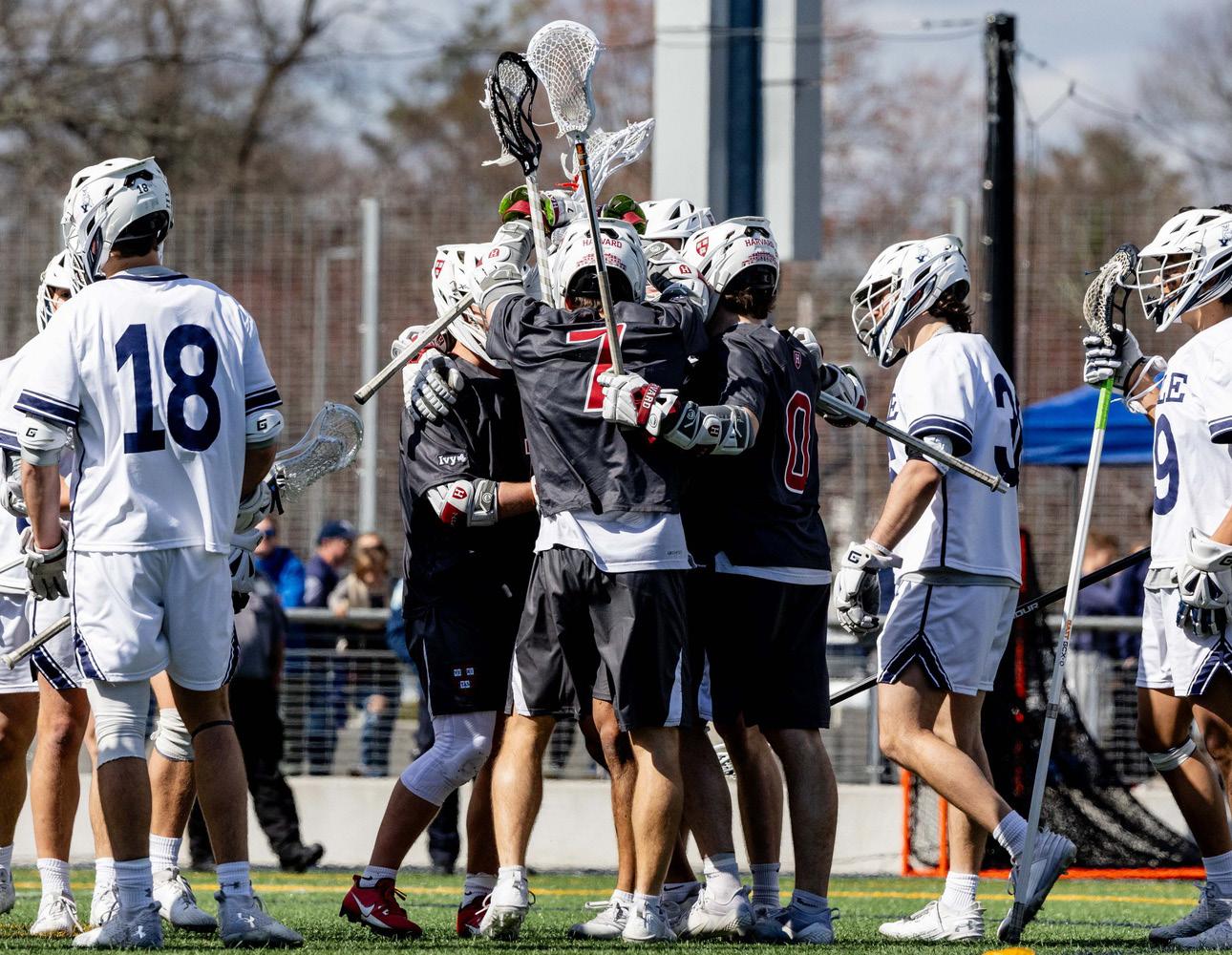
during the quarter with 9 seconds remaining in the power play, finding success again by holding space on the left side of the crease for a quick fake and finish past the Yale netminder. The Bulldog’s senior middie Thomas Bragg – who is known for his cannon-like outside shot – responded, sailing a lefty bullet past Barnard. However, a set of penalties against Pisano and sophomore defender Eric Platten sent Harvard up two men for 30 seconds and up one man for a locked-in two minutes. Pisano was sidelined for a thirty second push, and Platten sat for an entire two minutes due to unnecessary contact to the head. It was this moment of being unable to control its controllables that forced Yale to have to defend against a Harvard comeback.
“Sometimes your opponents make mistakes, which they made a couple of penalties in one play, that – in a game they were in control of – you know, five minutes later, it was a two-goal game,” Byrne said. “So, you know momentum shifts like that are opening a door for an opponent. You don’t control that on your end, sometimes they just do things that open the door for you.”
Sophomore offensive middie Logan Ip struck first on the power play, sending a blazing righty shot past Paquette from the left wing with 10 seconds left on the two-man advantage. His goal waved the remainder of Pisano’s penalty, but his quick-strike kept the Crimson up a player for an additional minute and forty seconds. Blake, who alongside junior attackman Liam Griffiths has been lethal on the man-up this season, found the back of the net 40 seconds later on a high-tolow feed from King.
The Crimson man-up unit has found its stride mid-season, moving the ball with intention and striking the gaps left vulnerable by its opponent. Blake, who has been a leader on the offense alongside King and Malone, crept around the right side of the crease, maintaining his post a step above goal line extended, where he received the risky cross-fan pass from King for a wide-open fake and finish on the doorstep.
“I think everything went well for us offensively,” Malone said. “They couldn’t really guard us in any facet. Every time we touched the ball we got good looks, and I’m very confident in how our offense has performed all season long, and I really think that showed during this game.”
The Harvard bench erupted in cheers, quieting the previously
vocal Yale stands, as the Crimson began to claw its way back into the game. The next three goals would fall in favor of Byrne’s squad, with Ip scoring about a minute and a half later on a drive down the left alley. Ip got a step on his defender which allowed him to lower his shoulder and get underneath senior middie Patrick Hackler before finding paydirt on the crease. Ninety seconds later, Malone sealed the team’s dominant third quarter performance with an additional tally to narrow Yale’s lead to just three. An air of anticipation could be felt throughout the stadium as Malone made a shifty move on junior defender Michael Alexander, driving down the right alley as he bodied up Alexander, using his physical prowess to separate from the West Islip, N.Y. native, who overplayed him as he raced down the right side. Malone felt Alexander over-anticipate and rolled back, switching his hands to increase his angle before letting a lefty riser fly past Paquette’s right shoulder. Before the ball even left his cross, the stadium erupted in cheers.
While the third quarter was all Harvard, the fourth was gridlocked, as each squad responded to the other’s shifts in momentum. Ip struck first for the Crimson just 45 seconds into play, utilizing his speed to gain a step on senior defender Brett Mallee as he bolted out of his right-to-left outside roll dodge on the left elbow, creating space for his hands that allowed him to send a lefty sniper past Paquette. Bragg and freshman middie Cole Cashion responded, breaking the Bulldog’s 14 minute scoring drought to send their squad to a 16-12 advantage. Malone posted his fifth of the day three minutes after Cashion tallied his first collegiate goal.
The play started down on the defensive end on a CTO from junior SSDM Ray Dearth, who stripped Yale’s star senior attacker Matt Brandau at the point. The shortstick defensive play from Dearth, junior captain Andrew O’Berry and sophomores Owen Guest and Finn Jensen stood out throughout the game, and was a testament to the team’s improved communication. Dearth was unable to secure the initial ground ball, but Barnard was able to scoop it in front of the crease and carried it himself across the midline to ensure the Harvard clear would stand. Barnard posted the best performance of his career with 19 saves and a 52 percent save rate. While the Greenwich, Conn. na-
tive struggled to see the ball high during the first quarter, a series of key saves throughout the third and fourth helped the defense compensate for its skewed play time due to consistent losses at the faceoff X. As the ESPN announcers said during the game, Barnard “might be the fastest goalie that I’ve seen in recent memory.”
Using that speed to his advantage, Barnard hit a cutting attackman, who settled the ball to allow for offensive substitutions before starting its rotations. Malone ultimately struck paydirt with an outside left-to-right roll reminiscent of Ip’s goal before his, nailing the ball home with a lefty bouncer through Paquette’s five-hole. Two minutes later, King found success with his signature move around the right side of the crease, battling through the switch on a pick set by sophomore offensive middie John Aurandt IV, narrowing Yale’s lead to just two goals with 5:33 on the clock.
DeGennaro secured the win at the faceoff X, a crucial victory that should have set the Crimson up to narrow its deficit to just one goal, as a one-minute flag was called against Yale for tripping. Despite the advantage, Harvard lost possession of the ball on its offensive end. Then, in a costly defensive error, Barnard left his cage to guard a low attacker in the ten-man-ride, despite not needing to take the risk due to the man-up advantage. Hackler recognized the opportunity and sailed a massive ball from the opposite goal line, finding the back of the cage in what would ultimately clinch Yale’s victory. While King found success one last time on an unassisted take around the right side of the cage, the Bulldogs ended the back-and-forth battle victorious.
“We need to work on our fast break defense. I think we have to work on the ground balls,” Byrne said. “We were at a deficit, not only at the faceoffs, but we were losing the ground ball faceoffs, which means that the time of possession was skewed in the first half. So, a lot of ground ball work and a lot of faceoff work, and a lot of unsettled, fast-break defense.” The Crimson will need to bounce back from the narrow loss quickly as the team is set to host No. 13 Princeton (4-2) on Saturday at 12:00 pm on Jordan Field. The game will serve as Harvard’s alumni game, which will bring much-needed energy to the stadium. The game will also be streamed on ESPN+.
katharine.forst@thecrimson.com

